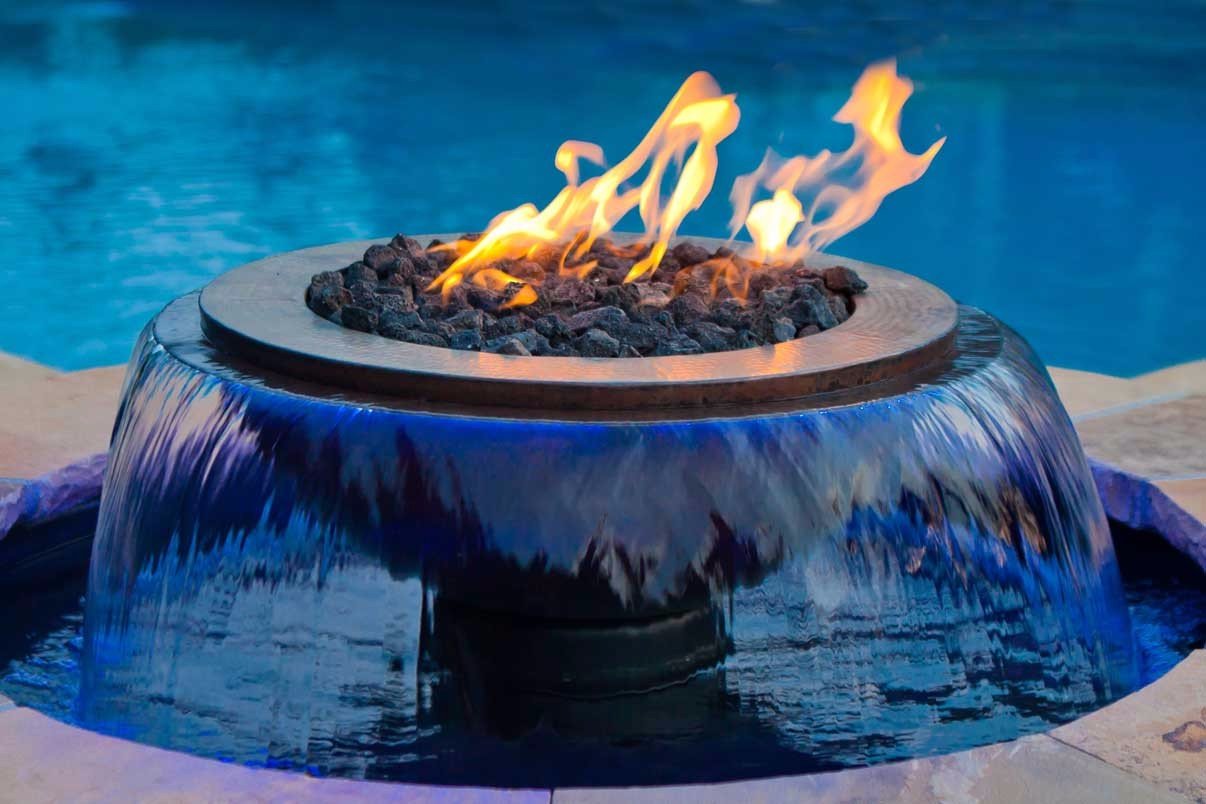بسم الله الرحمن الرحيم
Assalamu Alaikum.
The Quran contains numerous parables as does the Sunnah.
Allah says:
وَلَقَدْ ضَرَبْنَا لِلنَّاسِ فِي هَـٰذَا الْقُرْآنِ مِن كُلِّ مَثَلٍ لَّعَلَّهُمْ يَتَذَكَّرُونَ
And indeed We have put forth for men, in this Quran every kind of similitude in order that they may remember. [Surah Az-Zumar (39) : 27]
Two of these parables (or similitudes) are mentioned in the following verse:
أَنزَلَ مِنَ السَّمَاءِ مَاءً فَسَالَتْ أَوْدِيَةٌ بِقَدَرِهَا فَاحْتَمَلَ السَّيْلُ زَبَدًا رَّابِيًا ۚ وَمِمَّا يُوقِدُونَ عَلَيْهِ فِي النَّارِ ابْتِغَاءَ حِلْيَةٍ أَوْ مَتَاعٍ زَبَدٌ مِّثْلُهُ ۚ كَذَٰلِكَ يَضْرِبُ اللَّـهُ الْحَقَّ وَالْبَاطِلَ ۚ فَأَمَّا الزَّبَدُ فَيَذْهَبُ جُفَاءً ۖ وَأَمَّا مَا يَنفَعُ النَّاسَ فَيَمْكُثُ فِي الْأَرْضِ ۚ كَذَٰلِكَ يَضْرِبُ اللَّـهُ الْأَمْثَالَ
He sends down water (rain) from the sky, and the valleys flow according to their measure, but the flood bears away the foam that mounts up to the surface, and (also) from that (ore) which they heat in the fire in order to make ornaments or utensils, rises a foam like unto it, thus does Allah (by parables) show forth truth and falsehood. Then, as for the foam it passes away as scum upon the banks, while that which is for the good of mankind remains in the earth. Thus Allah sets forth parables (for the truth and falsehood, i.e. Belief and disbelief). [Surah Ar-Rad (13) : 17]
This verse sets forth two parables: one using water and the other using fire.
Imam Ibn Kathir (rahimahullah) states in his explanation of the above verse:
“This honorable Ayah contains two parables which affirm that truth remains and increases, while falsehood diminishes and perishes. Allah said,
﴿أَنزَلَ مِنَ الْسَّمَآءِ مَآءً﴾
(He sends down water from the sky,) He sends rain,
﴿فَسَالَتْ أَوْدِيَةٌ بِقَدَرِهَا﴾
(and the valleys flow according to their measure,) each valley taking its share according to its capacity, for some valleys are wider and can retain more water than others which are small and thus retain smaller measures of water. This Ayah indicates that hearts differ, for some of them can retain substantial knowledge while others cannot entertain knowledge, but rather are bothered by knowledge,
﴿فَاحْتَمَلَ السَّيْلُ زَبَدًا رَّابِيًا﴾
(but the flood bears away the foam that mounts up to the surface) of the water that ran down the valleys; this is the first parable.
Allah said next,
﴿وَمِمَّا يُوقِدُونَ عَلَيْهِ فِى النَّارِ ابْتِغَآءَ حِلْيَةٍ أَوْ مَتَـعٍ﴾
(and (also) from that (ore) which they heat in the fire in order to make ornaments or utensils…) This is the second parable, whereas gold and silver ore is heated with fire to make adornments with it, and iron and copper ore are heated to make pots and the like with it. Foam also rises to the surface of these ores, just as in the case with water,
﴿كَذَلِكَ يَضْرِبُ اللَّهُ الْحَقَّ وَالْبَـطِلَ﴾
(thus does Allah (by parables) show forth truth and falsehood.) when they both exist, falsehood does not remain, just as foam does not remain with the water or the gold and silver ores which are heated in fire. Rather, foam dissipates and vanishes,
﴿فَأَمَّا الزَّبَدُ فَيَذْهَبُ جُفَآءً﴾
(Then, as for the foam it passes away as scum upon the banks,) for it carries no benefit and dissipates and scatters on the banks of the valley. The foam also sticks to trees or is dissipated by wind, just as the case with the scum that rises on the surface of gold, silver, iron and copper ores; it all goes away and never returns. However, water, gold and silver remain and are used to man’s benefit. This is why Allah said next,
﴿وَأَمَّا مَا يَنفَعُ النَّاسَ فَيَمْكُثُ فِى الاٌّرْضِ كَذلِكَ يَضْرِبُ اللَّهُ الاٌّمْثَالَ﴾
(while that which is for the good of mankind remains in the earth. Thus Allah sets forth parables.) Allah said in a similar Ayah,
﴿وَتِلْكَ الاٌّمْثَالُ نَضْرِبُهَا لِلنَّاسِ وَمَا يَعْقِلُهَآ إِلاَّ الْعَـلِمُونَ ﴾
(And these similitudes We put forward for mankind; but none will understand them except those who have knowledge.)(29:43)
Some of the Salaf (rightly guided ancestors) said, “When I would read a parable in the Quran that I could not comprehend, I would cry for myself because Allah the Exalted says,
﴿وَمَا يَعْقِلُهَآ إِلاَّ الْعَـلِمُونَ﴾
(But none will understand them except those who have knowledge.)” (29:43)
Ali bin Abi Talhah reported that Abdullah bin Abbas commented on Allah’s statement,
﴿أَنَزَلَ مِنَ السَّمَآءِ مَآءً فَسَالَتْ أَوْدِيَةٌ بِقَدَرِهَا﴾
(He sends down water from the sky, and the valleys flow according to their measure,) “This is a parable that Allah has set; the hearts carry knowledge from Him, and certainty according to the amount of doubt. As for doubt, working good deeds does not benefit while it exists. As for certainty, Allah benefits its people by it, hence Allah’s statement,
﴿فَأَمَّا الزَّبَدُ﴾
(Then, as for the foam), which refers to doubt,
﴿فَيَذْهَبُ جُفَآءً وَأَمَّا مَا يَنفَعُ النَّاسَ فَيَمْكُثُ فِى الاٌّرْضِ﴾
(it passes away as scum upon the banks, while that which is for the good of mankind remains in the earth.) in reference to certainty. And just as when jewelry is heated in fire and is rid of its impurity, which remains in the fire, similarly Allah accepts certainty and discards doubt.”
So, let’s visualise what Imam Ibn Kathir (rahimahullah) said.
First, Allah sends down the rain from the sky.
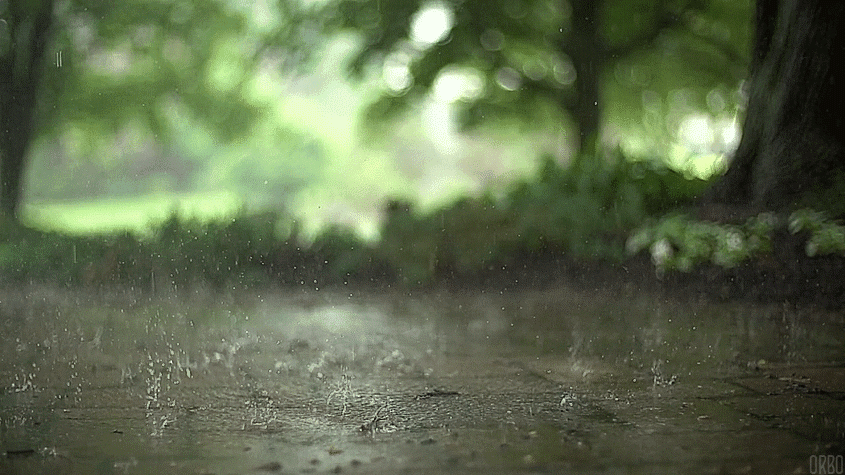
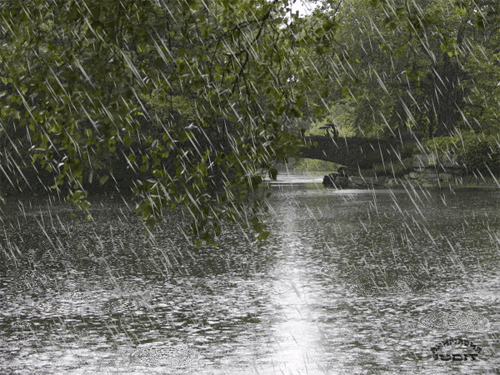
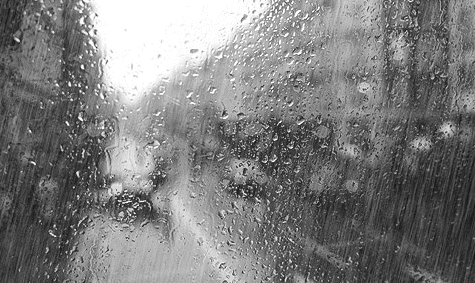
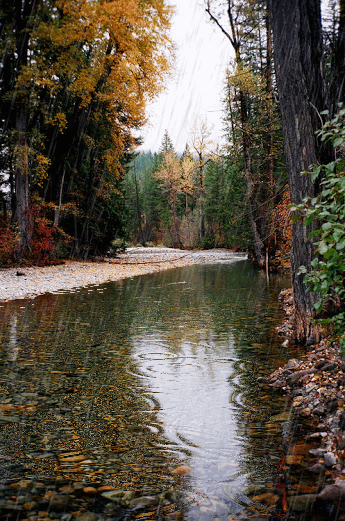
Then, each valley takes in a certain amount of water depending on how wide it is. So, the wide valleys gather a lot of water.

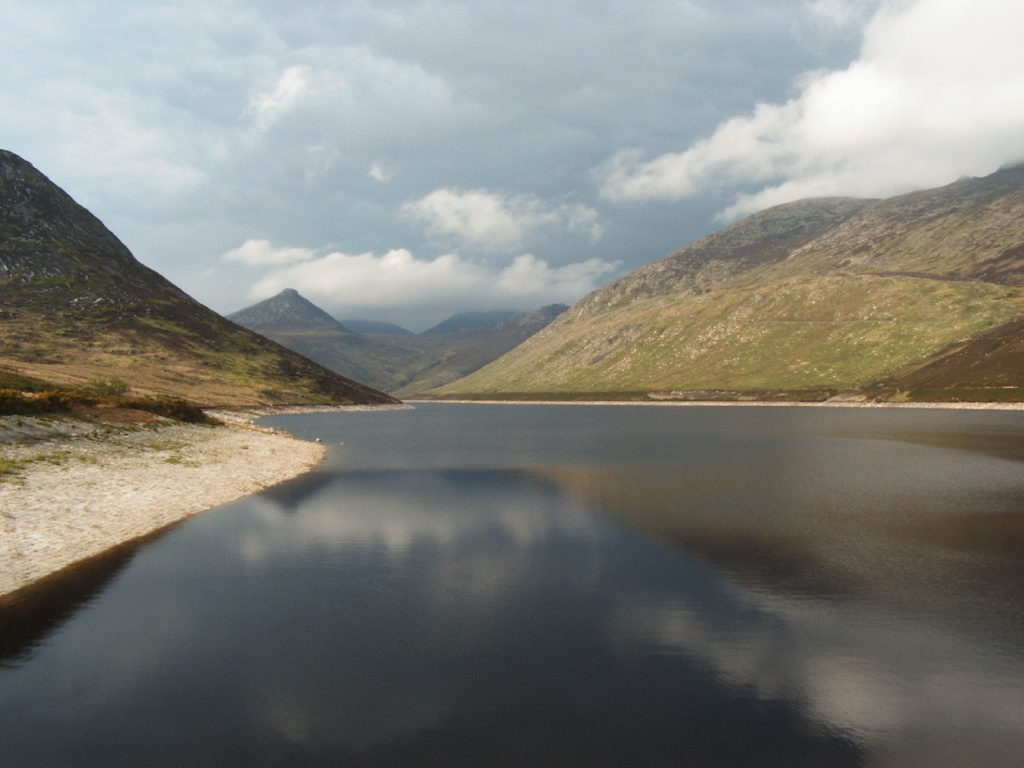
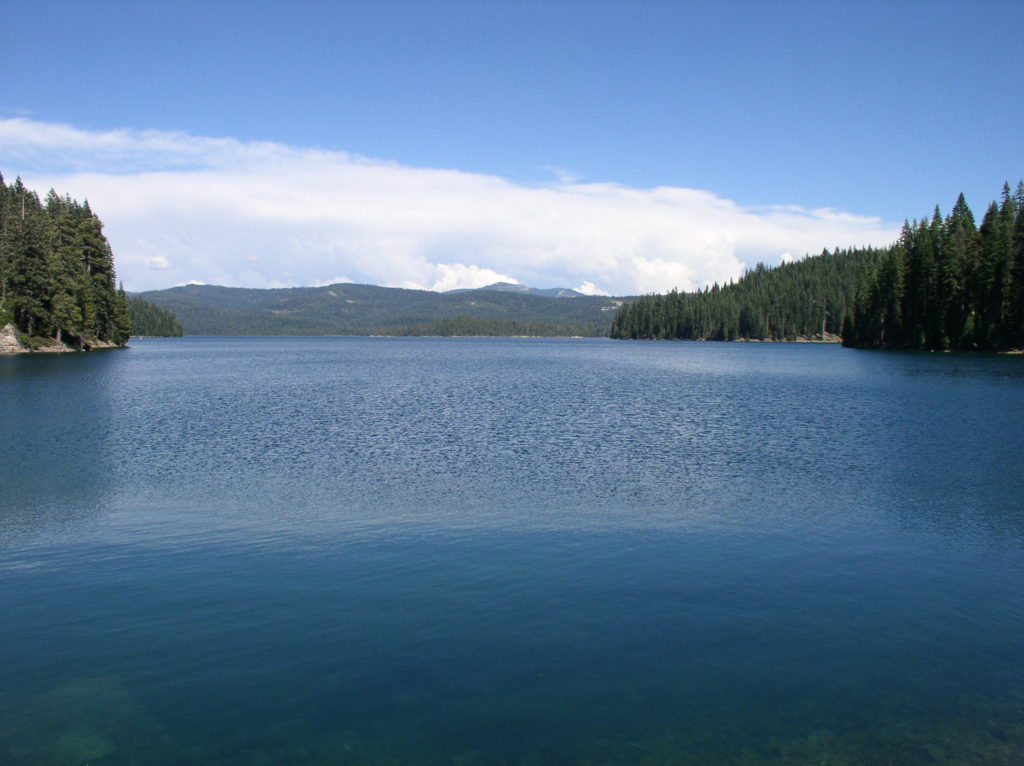
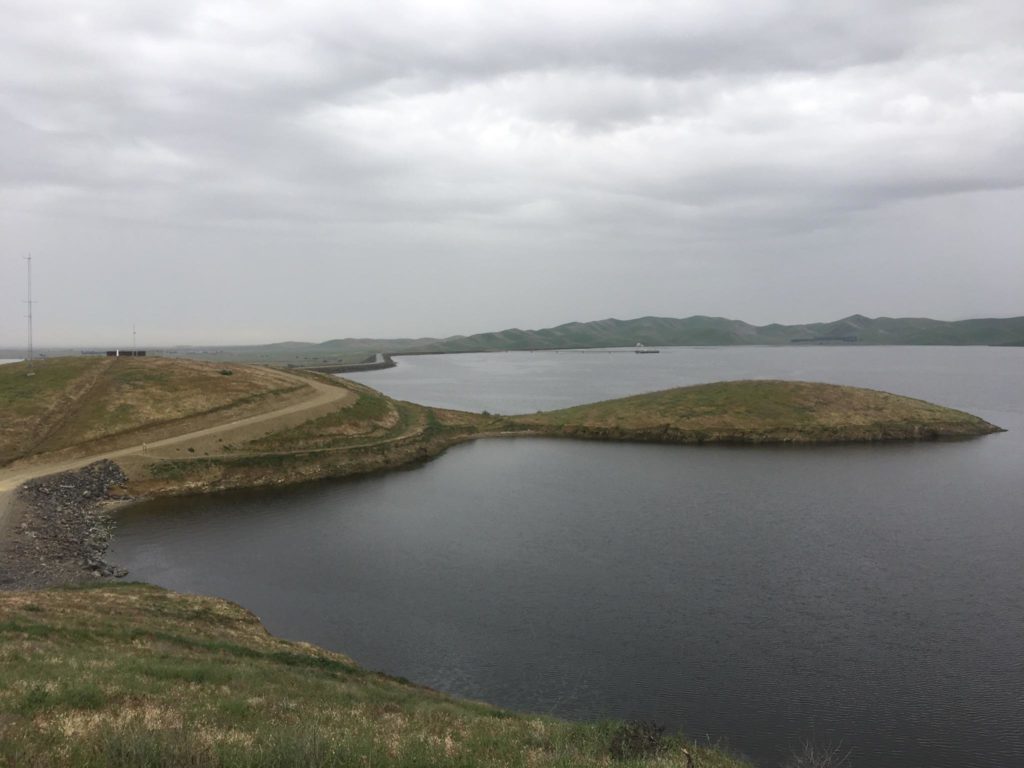
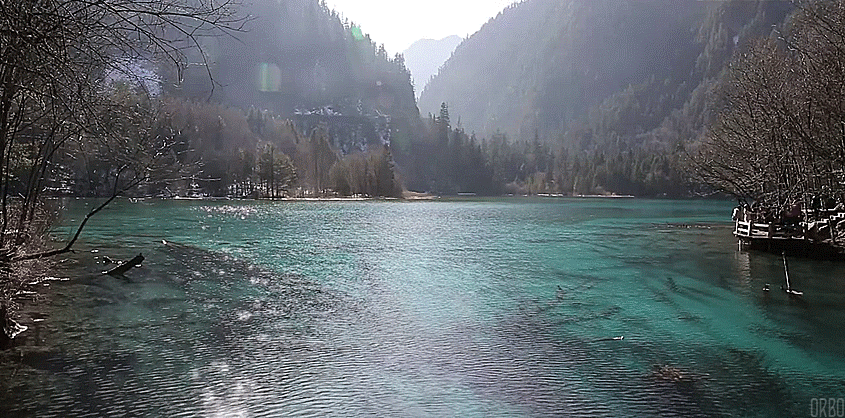

However, smaller valleys cannot hold as much water.
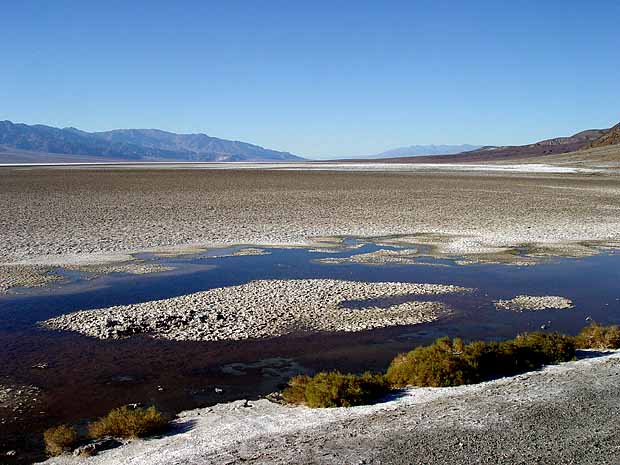
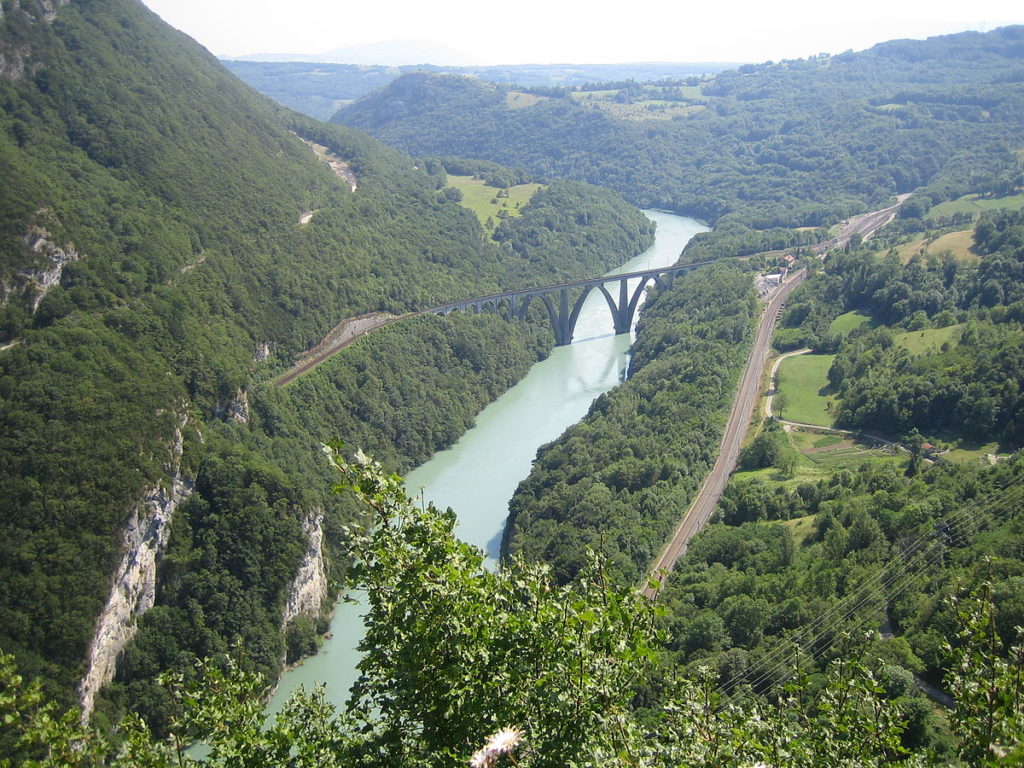
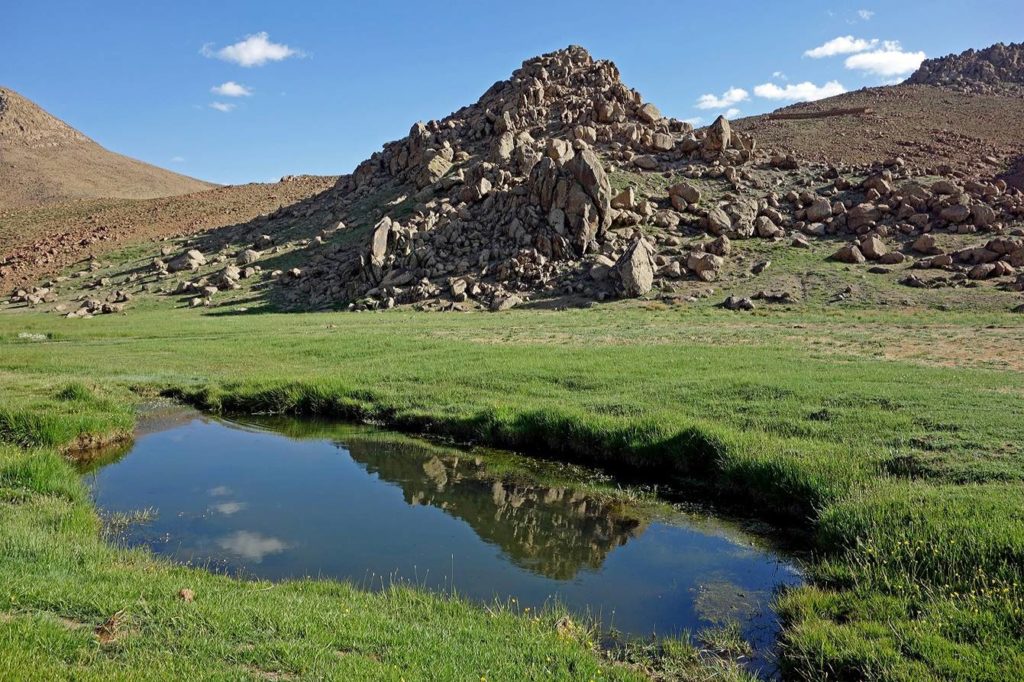
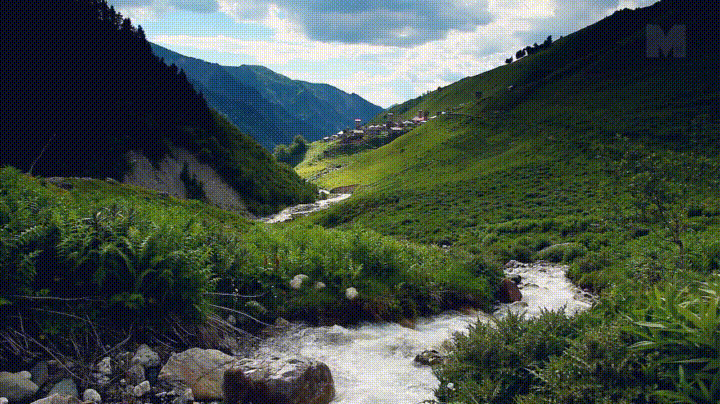
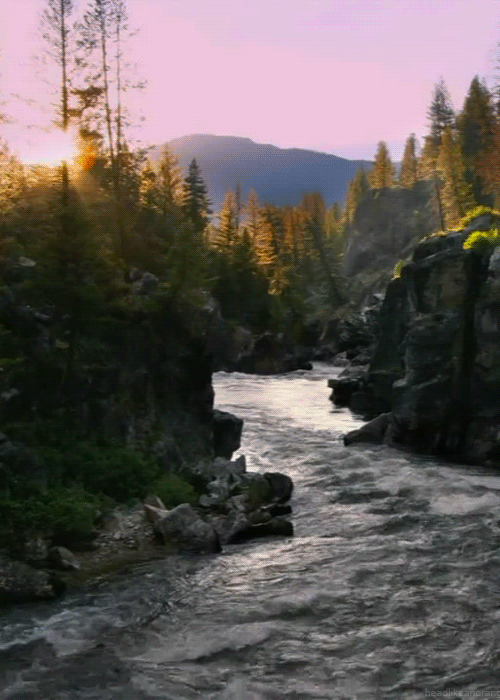
The water is a metaphor for knowledge whilst the valley is a metaphor for the heart. Some hearts can take large amounts of knowledge just as some valleys can take in lots of water. Other hearts though cannot take in that much knowledge. May Allah make our hearts like the wide valleys and not the small ones.
Now, as the water runs down the valley, foam rises up to the surface of the water.
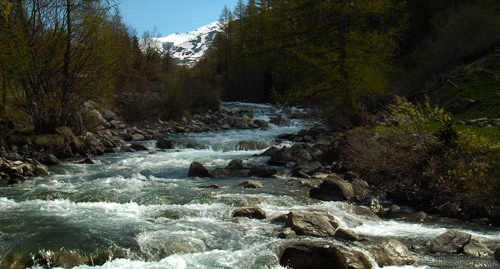

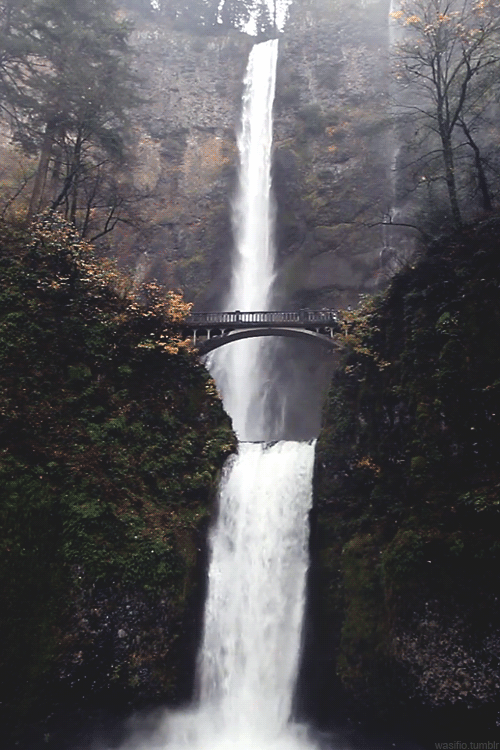
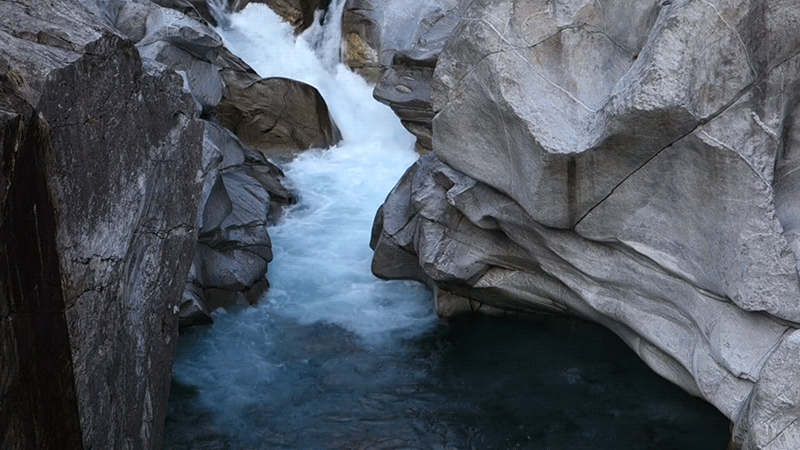
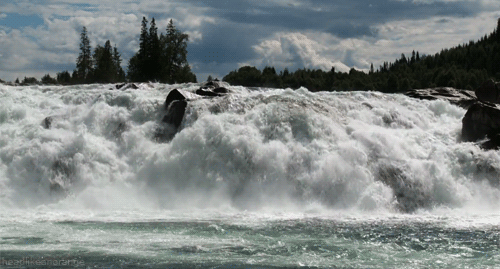

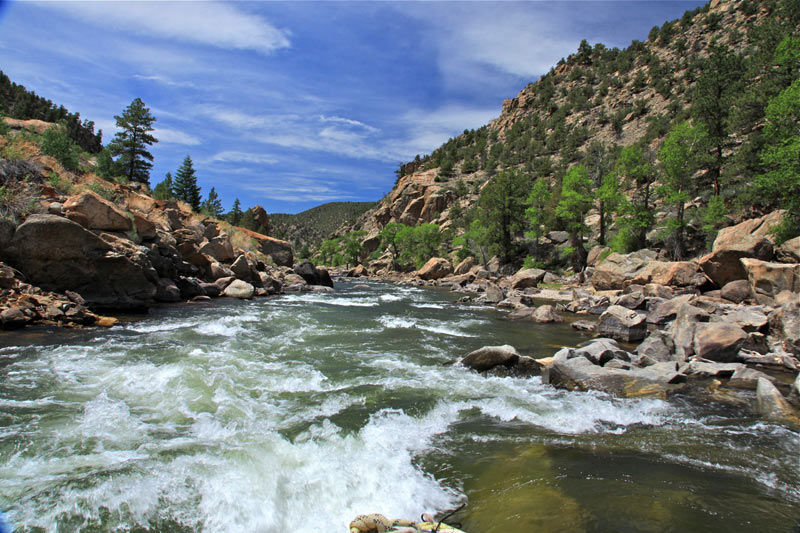

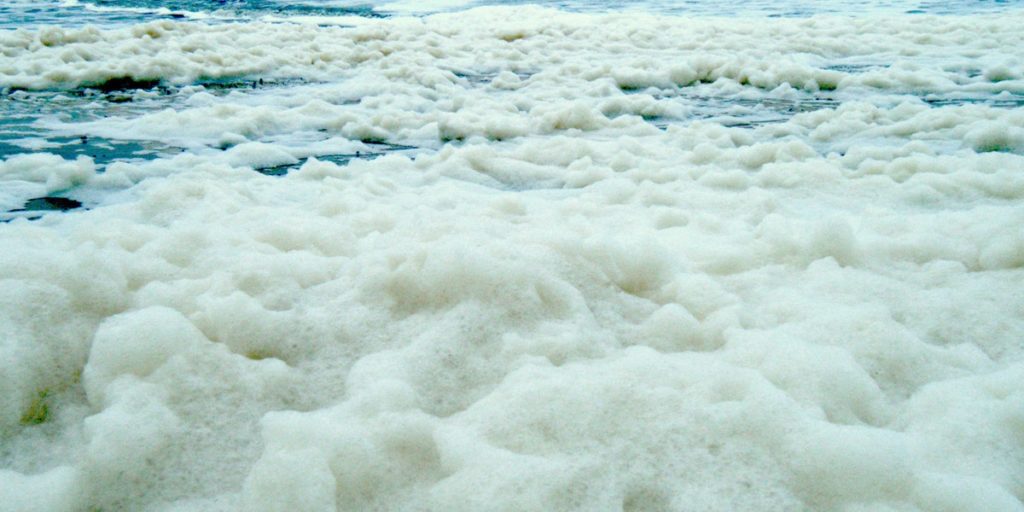
The flood then does away with the foam.
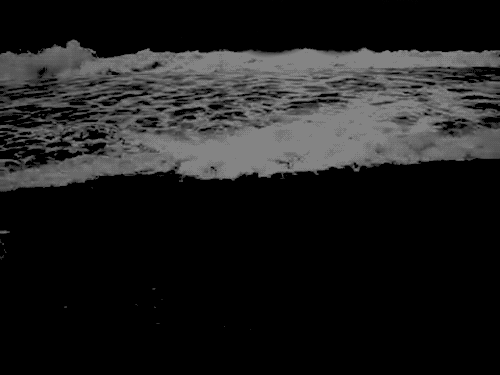
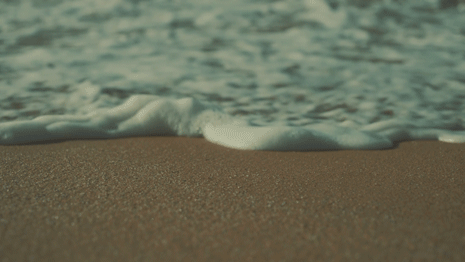
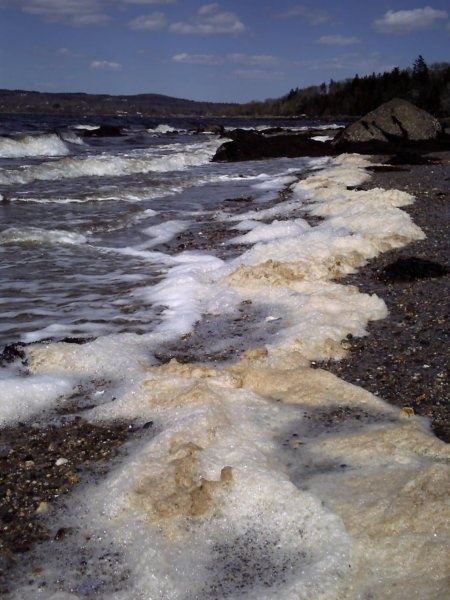
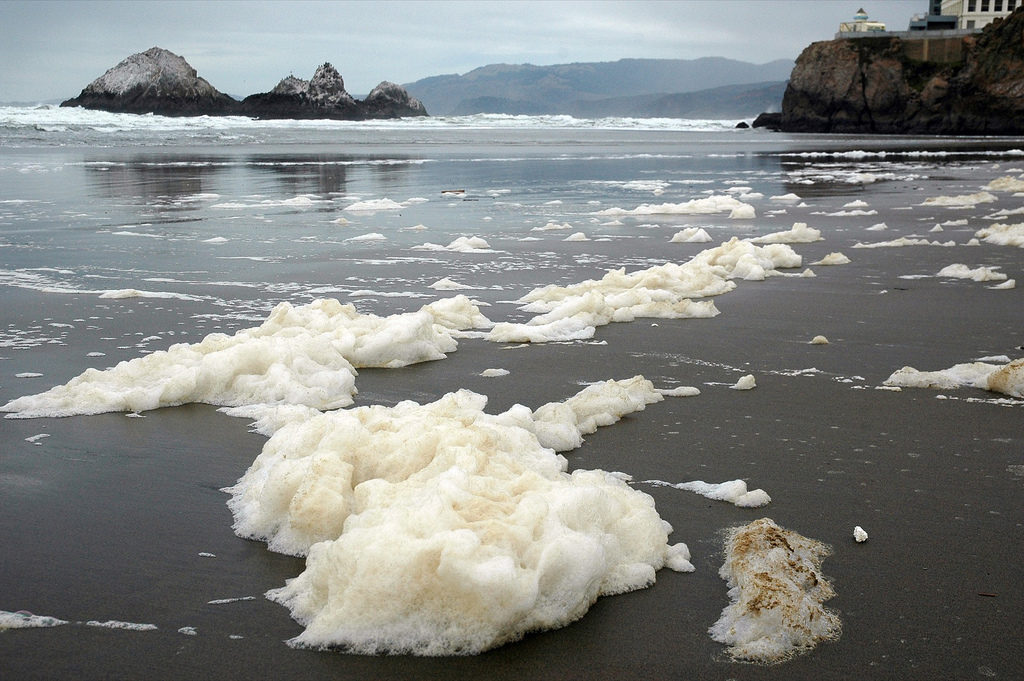
The foam is like falsehood. It’s useless and has no benefit. The flood (the water represents knowledge) does away with it, like truth does away with falsehood. So, basically knowledge and guidance purify the hearts and remove the evil within it, the same way the water removes the scum.
That’s the first parable. The second one is about ores. These come in different types. For example, gold and silver ores are used to make jewelry whereas iron and copper are used to make utensils.
Here are some gold ores:
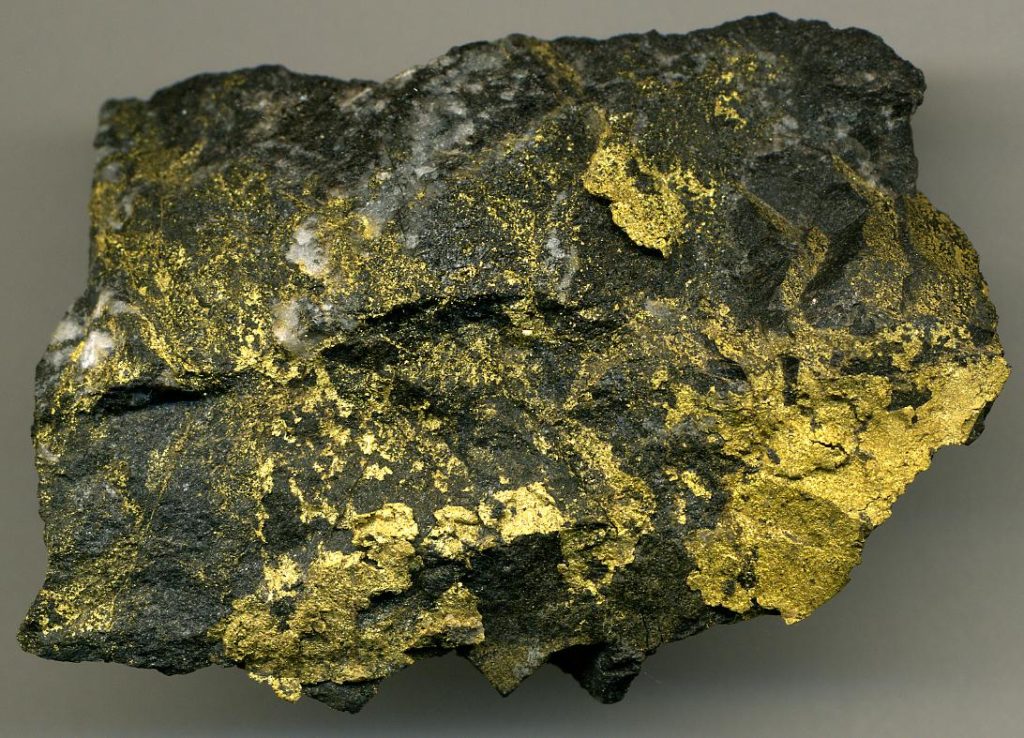
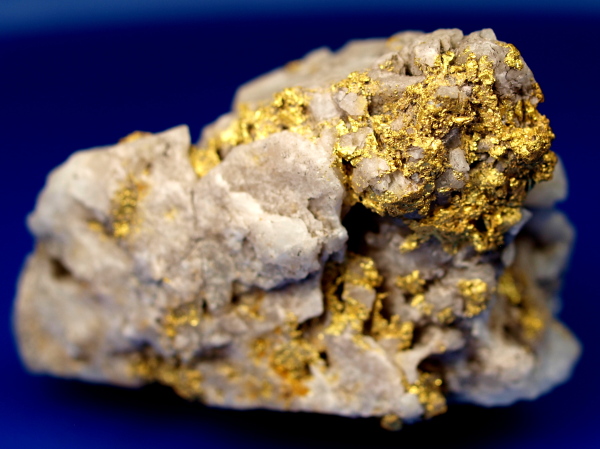
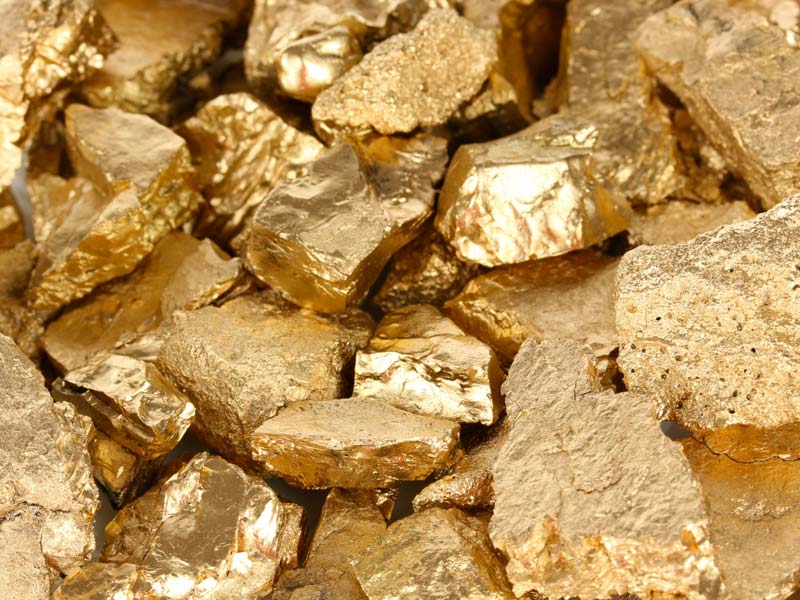
Here are some silver ores:
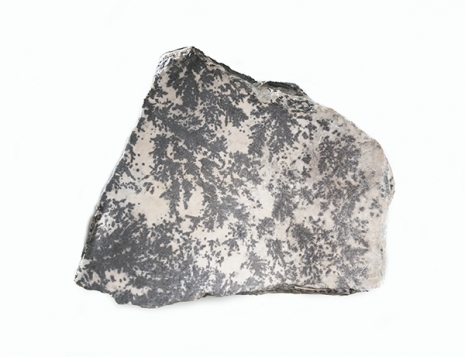
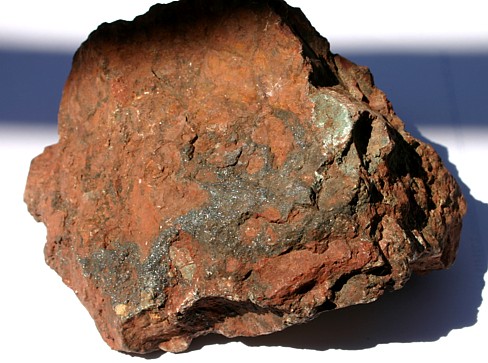
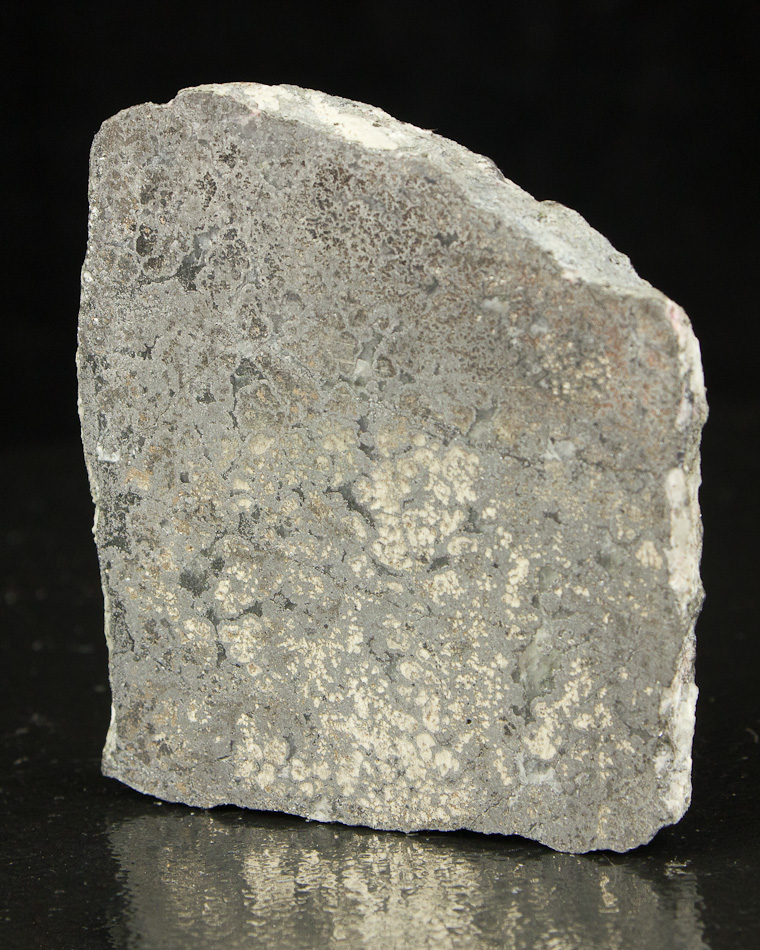
Here are some iron ores:
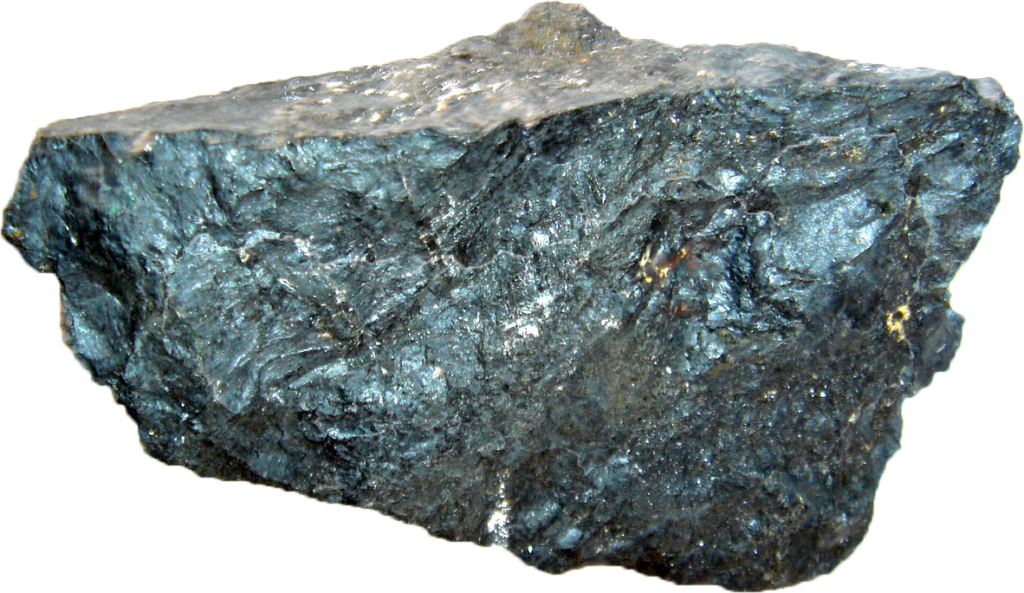
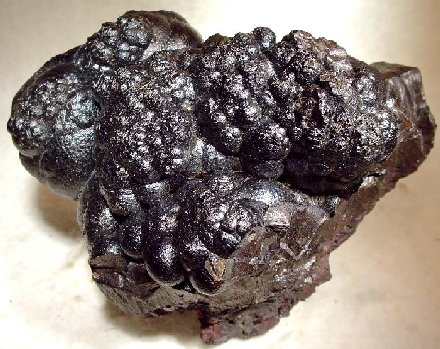
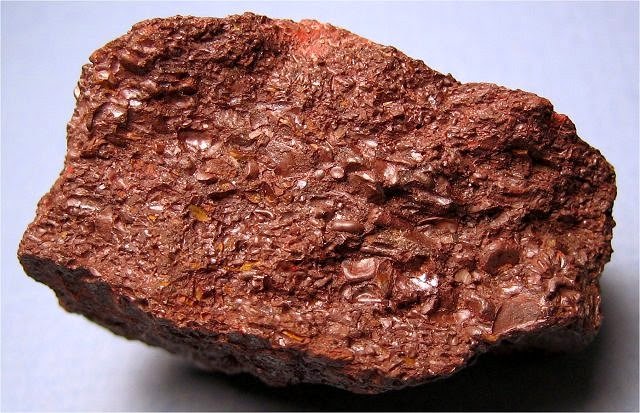
And here are some copper ores:
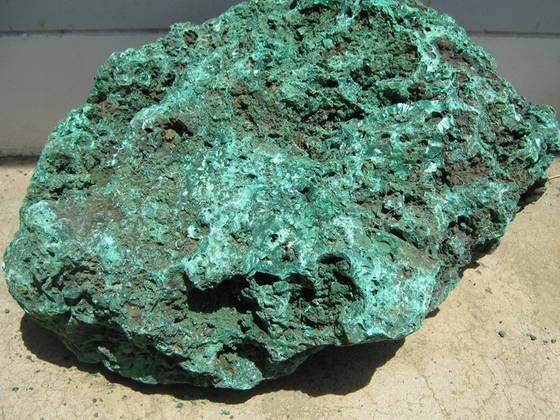
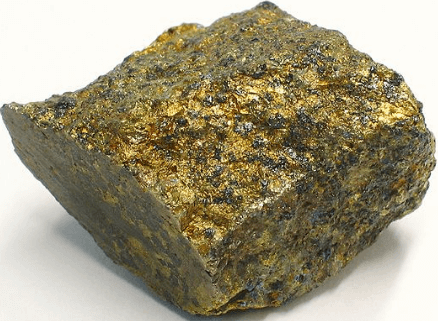
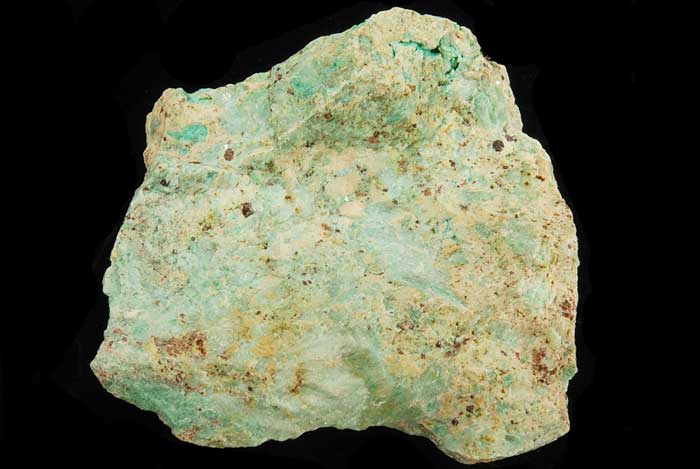
Now, these ores are heated in fire.
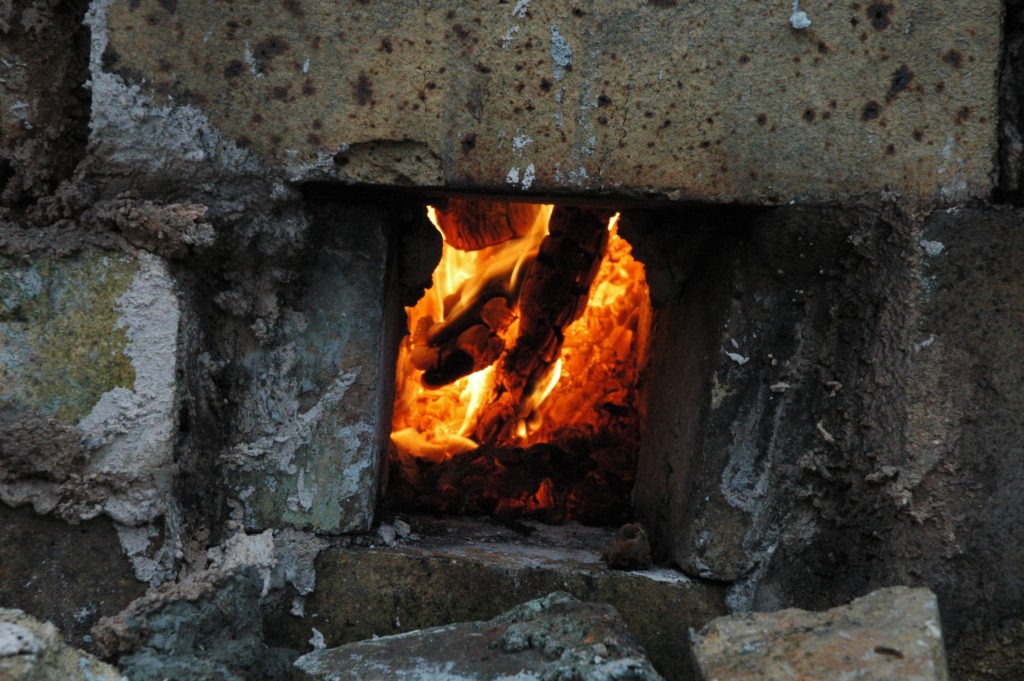
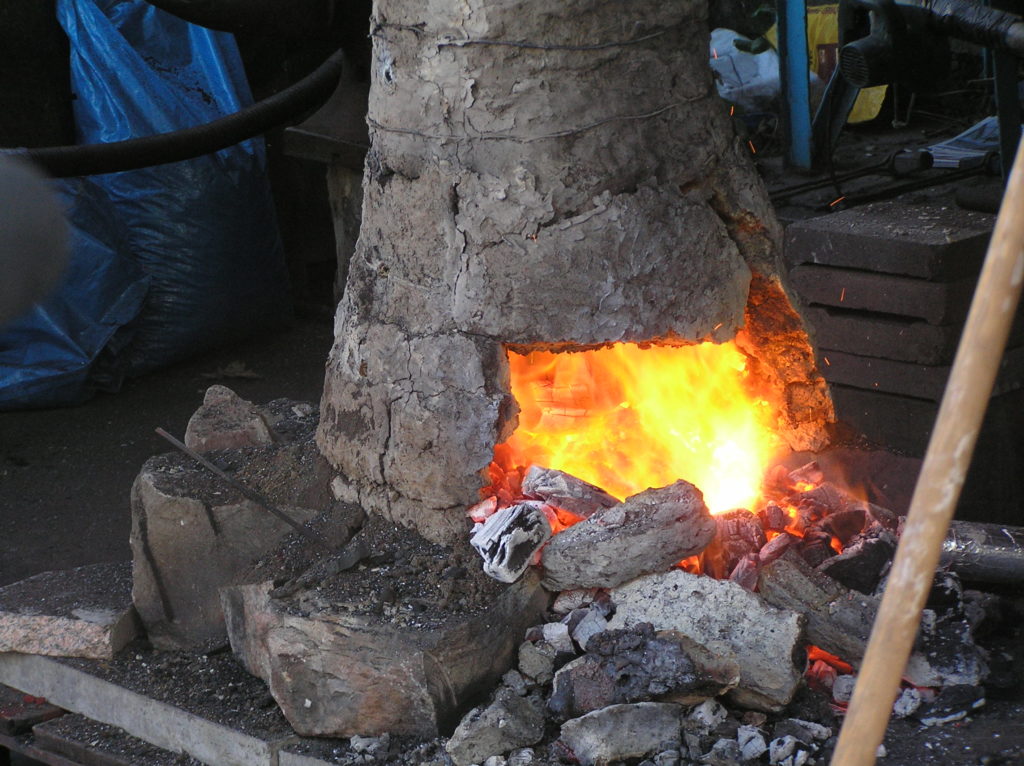
Here’s a video which actually shows the process of extracting pure iron from an ore.
Here’s a diagram of the process:

The “slag” mentioned here is the stony waste matter which has been separated from the iron. Hence, this is what is mentioned in this verse. What is interesting is that the verse implies that the waste matter rises to the top and it does!
Here’s a pile of slag:
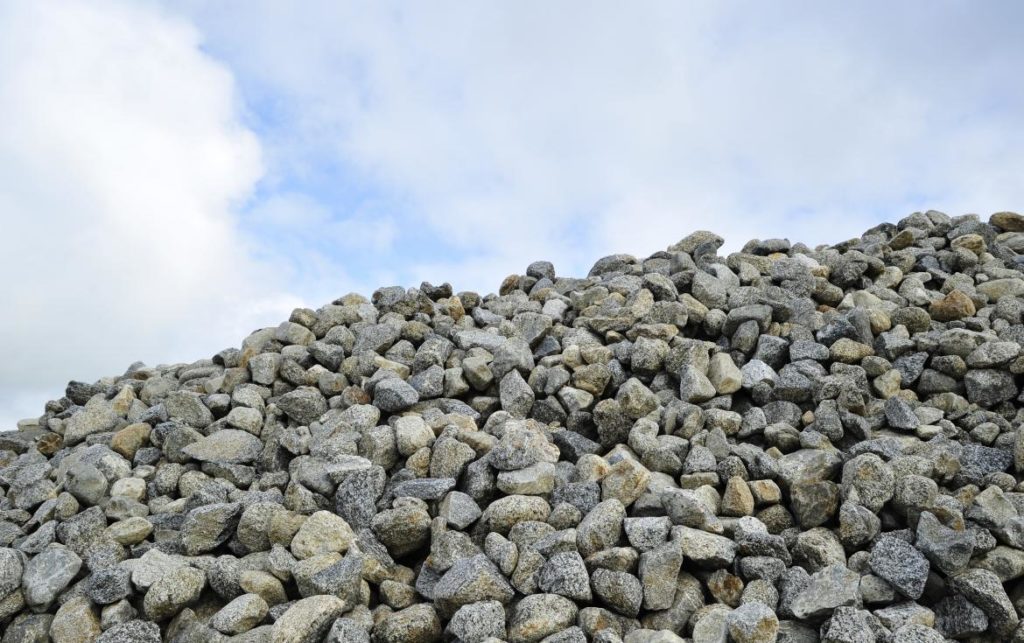
I’m sorry, what’s that you said? It doesn’t look so useless? Well, not when compared on its own, I guess. However, you have to remember, that two of the substances mentioned above end up being used as follows:
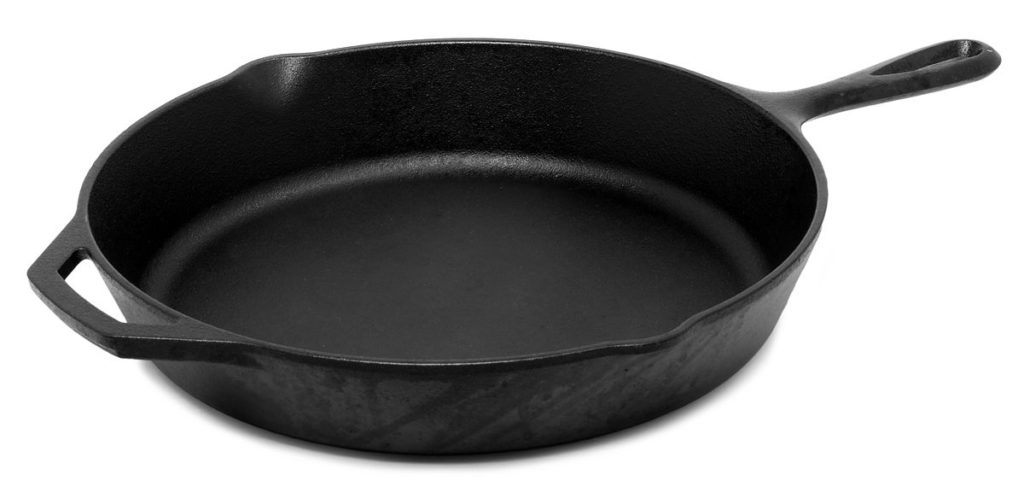
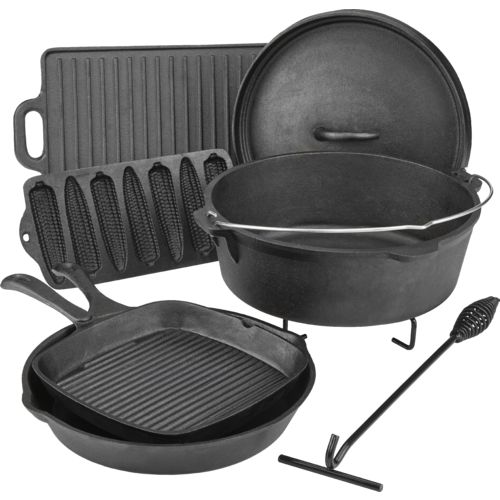
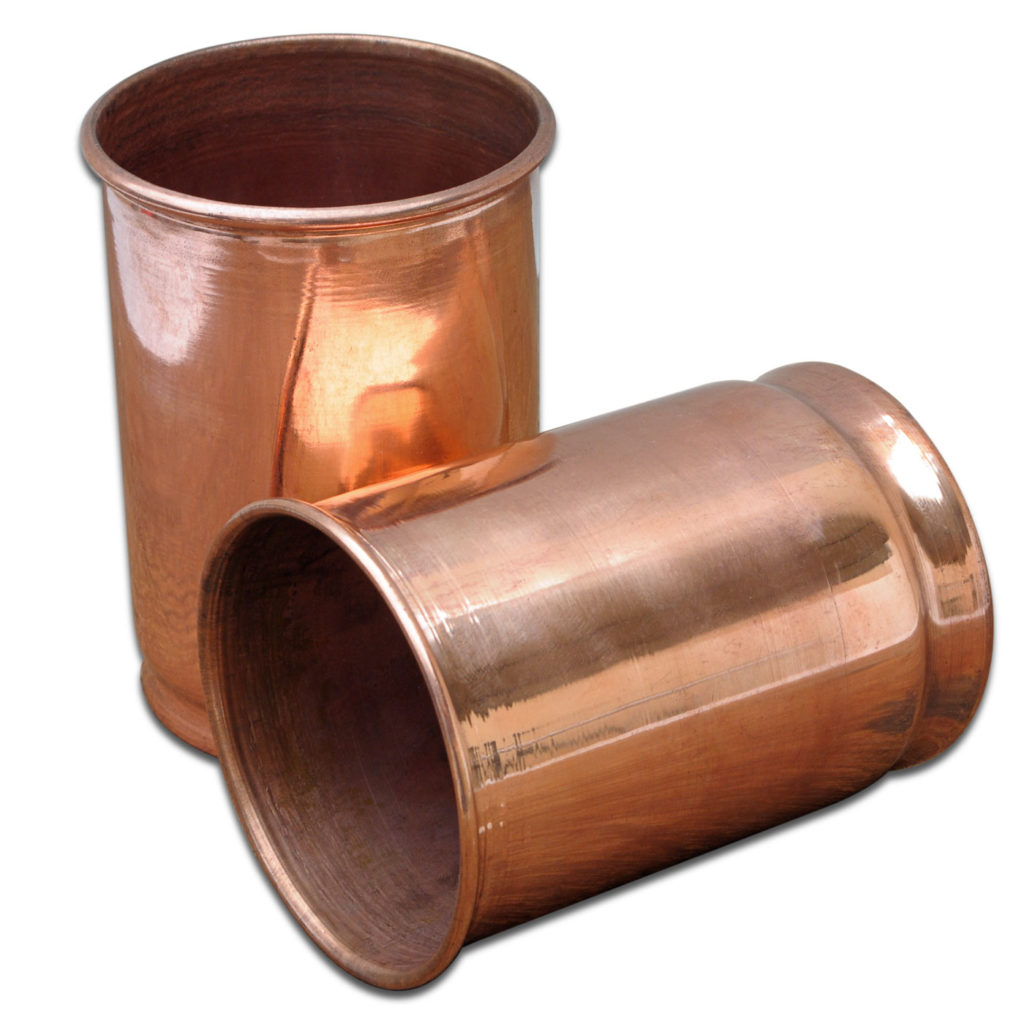

And the remaining two substances are used like this:
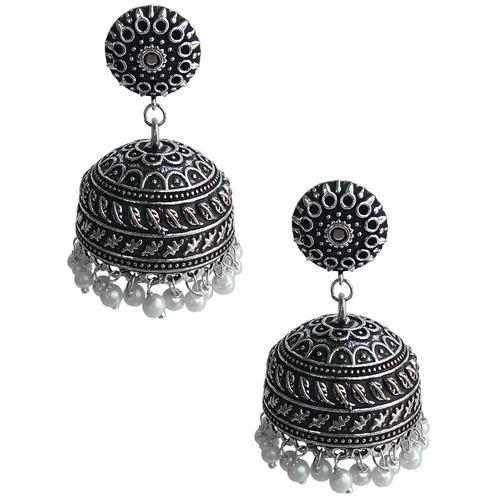


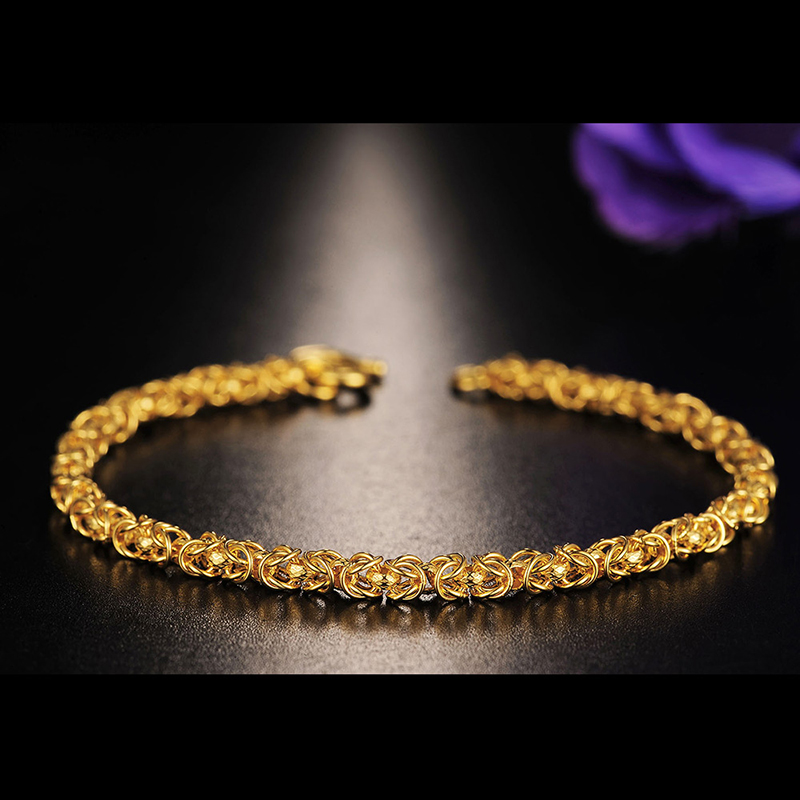
So, this is what remains – all the good stuff. This is what truth is – the good stuff. It remains and benefits mankind. The fire causes the good stuff to remain and the useless stuff to go away. This is another example of how knowledge purifies the heart from doubts and desires.
Those were the two parables mentioned in these verses. Ibn Kathir then discusses other parables mentioned in the Quran and Sunnah that also use water and fire.
He first mentions the parables in the Quran stating:
“Allah has set two examples in the beginning of Surat Al-Baqarah (chapter 2) about the hypocrites, one using fire and another using water. Allah said,
﴿مَثَلُهُمْ كَمَثَلِ الَّذِى اسْتَوْقَدَ نَاراً فَلَمَّآ أَضَاءَتْ مَا حَوْلَهُ﴾
(Their likeness is as the likeness of one who kindled a fire; then, when it illuminated all around him.) (2:17) then He said,
﴿أَوْ كَصَيِّبٍ مِّنَ السَّمَآءِ فِيهِ ظُلُمَـتٌ وَرَعْدٌ وَبَرْقٌ﴾
(Or like a rainstorm in the sky, bringing darkness, thunder, and lightning.) (2:19)
Allah also has set two parables for the disbelievers in Surat An-Nur (chapter 24), one of them is,
﴿وَالَّذِينَ كَفَرُواْ أَعْمَـلُهُمْ كَسَرَابٍ﴾
(As for those who disbelieved, their deeds are like a mirage in a desert.) (24:39) The mirage occurs during intense heat. It is recorded in the Two Sahihs that the Messenger of Allah (sallallahu alaihi wasallam) said,
«فَيُقَالُ لِلْيَهُودِ يَوْمَ الْقِيَامَةِ: فَمَا تُرِيدُون؟ فَيَقُولُونَ: أَيْ رَبَّنَا عَطِشْنَا فَاسْقِنَا. فَيُقَالُ: أَلَا تَرِدُونَ؟ فَيَرِدُونَ النَّارَ فَإِذَا هِيَ كَسَرَابٍ يَحْطِمُ بَعْضُهَا بَعْضًا»
(It will be said to the Jews on the Day of Resurrection, “What do you desire” They will reply, “We need to drink, for we have become thirsty, O our Lord!” It will be said, “Will you then proceed to drink,” and they will head towards the Fire, which will appear as a mirage, its various parts consuming the other parts.”) Allah said in the second parable (in Surat An-Nur);
﴿أَوْ كَظُلُمَـتٍ فِى بَحْرٍ لُّجِّىٍّ﴾
(Or is like the darkness in a vast deep sea.) (24:40)”
The first two parables mentioned are in Surah Al-Baqarah and they both discuss the hypocrites.
مَثَلُهُمْ كَمَثَلِ الَّذِي اسْتَوْقَدَ نَارًا فَلَمَّا أَضَاءَتْ مَا حَوْلَهُ ذَهَبَ اللَّـهُ بِنُورِهِمْ وَتَرَكَهُمْ فِي ظُلُمَاتٍ لَّا يُبْصِرُونَ
صُمٌّ بُكْمٌ عُمْيٌ فَهُمْ لَا يَرْجِعُونَ
أَوْ كَصَيِّبٍ مِّنَ السَّمَاءِ فِيهِ ظُلُمَاتٌ وَرَعْدٌ وَبَرْقٌ يَجْعَلُونَ أَصَابِعَهُمْ فِي آذَانِهِم مِّنَ الصَّوَاعِقِ حَذَرَ الْمَوْتِ ۚ وَاللَّـهُ مُحِيطٌ بِالْكَافِرِينَ
يَكَادُ الْبَرْقُ يَخْطَفُ أَبْصَارَهُمْ ۖ كُلَّمَا أَضَاءَ لَهُم مَّشَوْا فِيهِ وَإِذَا أَظْلَمَ عَلَيْهِمْ قَامُوا ۚ وَلَوْ شَاءَ اللَّـهُ لَذَهَبَ بِسَمْعِهِمْ وَأَبْصَارِهِمْ ۚ إِنَّ اللَّـهَ عَلَىٰ كُلِّ شَيْءٍ قَدِيرٌ
Their likeness is as the likeness of one who kindled a fire; then, when it lighted all around him, Allah took away their light and left them in darkness. (So) they could not see.
They are deaf, dumb, and blind, so they return not (to the Right Path).
Or like a rainstorm from the sky, wherein is darkness, thunder, and lightning. They thrust their fingers in their ears to keep out the stunning thunderclap for fear of death. But Allah ever encompasses the disbelievers (i.e. Allah will gather them all together).
The lightning almost snatches away their sight, whenever it flashes for them, they walk therein, and when darkness covers them, they stand still. And if Allah willed, He could have taken away their hearing and their sight. Certainly, Allah has power over all things. [Surah Al-Baqarah (2) : 17 – 20]
Ibn Kathir states in his explanation of the above verses:
“Allah likened the hypocrites when they bought deviation with guidance, thus acquiring utter blindness, to the example of a person who started a fire. When the fire was lit, and illuminated the surrounding area, the person benefited from it and felt safe. Then the fire was suddenly extinguished. Therefore, total darkness covered this person, and he became unable to see anything or find his way out of it. Further, this person could not hear or speak and became so blind that even if there were light, he would not be able to see. This is why he cannot return to the state that he was in before this happened to him. Such is the case with the hypocrites who preferred misguidance over guidance, deviation over righteousness. This parable indicates that the hypocrites first believed, then disbelieved, just as Allah stated in other parts of the Qur’an.
Allah’s statement,
﴿ذَهَبَ اللَّهُ بِنُورِهِمْ﴾
(Allah removed their light) means, Allah removed what benefits them, and this is the light, and He left them with what harms them, that is, the darkness and smoke. Allah said,
﴿وَتَرَكَهُمْ فِي ظُلُمَـتٍ﴾
(And left them in darkness), that is their doubts, disbelief and hypocrisy.
﴿لاَّ يُبْصِرُونَ﴾
((So) they could not see) meaning, they are unable to find the correct path or find its direction. In addition, they are,
﴿صُمٌّ﴾
(deaf) and thus cannot hear the guidance,
﴿بُكْمٌ﴾
(dumb) and cannot utter the words that might benefit them,
﴿عَمًى﴾
(and blind) in total darkness and deviation. Similarly, Allah said,
﴿فَإِنَّهَا لاَ تَعْمَى الاٌّبْصَـرُ وَلَـكِن تَعْمَى الْقُلُوبُ الَّتِى فِى الصُّدُورِ﴾
(Verily, it is not the eyes that grow blind, but it is the hearts which are in the breasts that grow blind) (22:46) and this why they cannot get back to the state of guidance that they were in, since they sold it for misguidance.
﴿أَوْ كَصَيِّبٍ مِّنَ السَّمَآءِ فِيهِ ظُلُمَـتٌ وَرَعْدٌ وَبَرْقٌ يَجْعَلُونَ أَصْـبِعَهُمْ فِى ءَاذَانِهِم مِّنَ الصَّوَعِقِ حَذَرَ الْمَوْتِ وَاللَّهُ مُحِيطٌ بِالْكـفِرِينَ – يَكَادُ الْبَرْقُ يَخْطَفُ أَبْصَـرَهُمْ كُلَّمَآ أَضَآءَ لَهُم مَّشَوْاْ فِيهِ وَإِذَآ أَظْلَمَ عَلَيْهِمْ قَامُواْ وَلَوْ شَآءَ اللَّهُ لَذَهَبَ بِسَمْعِهِمْ وَأَبْصَـرِهِمْ إِنَّ اللَّهَ عَلَى كُلِّ شَىْءٍ قَدِيرٌ ﴾
(19. Or like a rainstorm in the sky, bringing darkness, thunder, and lightning. They thrust their fingers in their ears to keep out the stunning thunderclap for fear of death. But Allah ever encompasses the disbelievers.) (20. The lightning almost snatches away their sight, whenever it flashes for them, they walk therein, and when darkness covers them, they stand still. And if Allah willed, He could have taken away their hearing and their sight. Certainly, Allah has power over all things.)
This is another parable which Allah gave about the hypocrites who sometimes know the truth and doubt it at other times. When they suffer from doubt, confusion and disbelief, their hearts are,
﴿كَصَيِّبٍ﴾
(Like a Sayyib), meaning, “The rain”, as Ibn Masud, Ibn Abbas, and several other Companions have confirmed as well as Abu Al-Aliyah, Mujahid, Said bin Jubayr, Ata, Al-Hasan Al-Basri, Qatadah, Atiyah Al-Awfi, Ata Al-Khurasani, As-Suddi and Ar-Rabi bin Anas. Ad-Dahhak said “It is the clouds.” However, the most accepted opinion is that it means the rain that comes down during,
﴿ظُلُمَـتِ﴾
(darkness), meaning, here, the doubts, disbelief and hypocrisy.
﴿وَرَعْدٌ﴾
(thunder) that shocks the hearts with fear. The hypocrites are usually full of fear and anxiety, just as Allah described them,
﴿يَحْسَبُونَ كُلَّ صَيْحَةٍ عَلَيْهِمْ﴾
(They think that every cry is against them) (63: 4), and,
﴿وَيَحْلِفُونَ بِاللَّهِ إِنَّهُمْ لَمِنكُمْ وَمَا هُم مِّنكُمْ وَلَـكِنَّهُمْ قَوْمٌ يَفْرَقُونَ – لَوْ يَجِدُونَ مَلْجَئاً أَوْ مَغَـرَاتٍ أَوْ مُدَّخَلاً لَّوَلَّوْاْ إِلَيْهِ وَهُمْ يَجْمَحُونَ ﴾
(They swear by Allah that they are truly of you while they are not of you, but they are a people who are afraid. Should they find refuge, or caves, or a place of concealment, they would turn straightway thereto in a swift rush) (9:56-57).
﴿الْبَرْقَ﴾
(The lightning), is in reference to the light of faith that is sometimes felt in the hearts of the hypocrites,
﴿يَجْعَلُونَ أَصْـبِعَهُمْ فِى ءَاذَانِهِم مِّنَ الصَّوَعِقِ حَذَرَ الْمَوْتِ وَاللَّهُ مُحِيطٌ بِالْكـفِرِينَ﴾
(They thrust their fingers in their ears to keep out the stunning thunderclap for fear of death. But Allah ever encompasses the disbelievers), meaning, their cautiousness does not benefit them because they are bound by Allah’s all-encompassing will and decision. Similarly, Allah said,
﴿هَلُ أَتَاكَ حَدِيثُ الْجُنُودِ – فِرْعَوْنَ وَثَمُودَ – بَلِ الَّذِينَ كَفَرُواْ فِى تَكْذِيبٍ – وَاللَّهُ مِن وَرَآئِهِمْ مُّحِيطٌ ﴾
(Has the story reached you of two hosts. Of Firawn (Pharaoh) and Thamud. Nay! The disbelievers (persisted) in denying. And Allah encompasses them from behind!) (85:17-20).
Allah then said,
﴿يَكَادُ الْبَرْقُ يَخْطَفُ أَبْصَـرَهُمْ﴾
(The lightning almost snatches away their sight) meaning, because the lightning is strong itself, and because their comprehension is weak and does not allow them to embrace the faith. Also, Ali bin Abi Talhah reported that Ibn Abbas commented on the Ayah,
﴿يَكَادُ الْبَرْقُ يَخْطَفُ أَبْصَـرَهُمْ﴾
(The lightning almost snatches away their sight), “The Quran mentioned almost all of the secrets of the hypocrites.” `Ali bin Abi Talhah also narrated that Ibn Abbas said,
﴿كُلَّمَآ أَضَآءَ لَهُم مَّشَوْاْ فِيهِ﴾
(Whenever it flashes for them, they walk therein), “Whenever the hypocrites acquire a share in the victories of Islam, they are content with this share. Whenever Islam suffers a calamity, they are ready to revert to disbelief.”. Similarly, Allah said,
﴿وَمِنَ النَّاسِ مَن يَعْبُدُ اللَّهَ عَلَى حَرْفٍ فَإِنْ أَصَابَهُ خَيْرٌ اطْمَأَنَّ بِهِ﴾
(And among mankind is he who worships Allah on the edge: If good befalls him, he is content with that.) (22:11). Also, Muhammad bin Ishaq reported that Ibn Abbas said,
﴿كُلَّمَآ أَضَآءَ لَهُم مَّشَوْاْ فِيهِ وَإِذَآ أَظْلَمَ عَلَيْهِمْ قَامُواْ﴾
(Whenever it flashes for them, they walk therein, and when darkness covers them, they stand still), “They recognize the truth and speak about it. So their speech is upright, but when they revert to disbelief, they again fall into confusion.” This was also said by Abu Al-Aliyah, Al-Hasan Al-Basri, Qatadah, Ar-Rabi bin Anas and As-Suddi, who narrated it from the Companions, and it is the most obvious and most correct view, and Allah knows best.
Consequently, on the Day of Judgment, the believers will be given a light according to the degree of their faith. Some of them will gain light that illuminates over a distance of several miles, some more, some less. Some people’s light will glow sometimes and be extinguished at other times. They will, therefore, walk on the Sirat (the bridge over the Fire) in the light, stopping when it is extinguished. Some people will have no light at all, these are the hypocrites whom Allah described when He said,
﴿يَوْمَ يَقُولُ الْمُنَـفِقُونَ وَالْمُنَـفِقَـتُ لِلَّذِينَ ءَامَنُواْ انظُرُونَا نَقْتَبِسْ مِن نُّورِكُمْ قِيلَ ارْجِعُواْ وَرَآءَكُمْ فَالْتَمِسُواْ نُوراً﴾
(On the Day when the hypocrites ـ men and women ـ will say to the believers: “Wait for us! Let us get something from your light!” It will be said to them; “Go back to you rear! Then seek a light!”) (57:13).
Allah described the believers,
﴿يَوْمَ تَرَى الْمُؤْمِنِينَ وَالْمُؤْمِنَـتِ يَسْعَى نُورُهُم بَيْنَ أَيْدِيهِمْ وَبِأَيْمَـنِهِم بُشْرَاكُمُ الْيَوْمَ جَنَّـتٌ تَجْرِى مِن تَحْتِهَا الاٌّنْهَـرُ﴾
(On the Day you shall see the believing men and the believing women ـ their light running forward before them and by their right hands. Glad tidings for you this Day! Gardens under which rivers flow (Paradise)) (57:12), and,
﴿يَوْمَ لاَ يُخْزِى اللَّهُ النَّبِىَّ وَالَّذِينَ ءَامَنُواْ مَعَهُ نُورُهُمْ يَسْعَى بَيْنَ أَيْدِيهِمْ وَبِأَيْمَـنِهِمْ يَقُولُونَ رَبَّنَآ أَتْمِمْ لَنَا نُورَنَا وَاغْفِرْ لَنَآ إِنَّكَ عَلَى كُلِّ شَىْءٍ قَدِيرٌ﴾
(The Day that Allah will not disgrace the Prophet (Muhammad ) and those who believe with him. Their Light will run forward before them and (with their Records ـ Books of deeds) in their right hands. They will say: “Our Lord! Keep perfect our Light for us [and do not put it off till we cross over the Sirat (a slippery bridge over the Hell) safely] and grant us forgiveness. Verily, You are Able to do all things”) (66:8).
Ibn Abi Hatim narrated that Abdullah bin Masud commented on,
﴿نُورُهُمْ يَسْعَى بَيْنَ أَيْدِيهِمْ﴾
(Their Light will run forward before them), “They will pass on the Sirat. according to their deeds. The light that some people have will be as big as a mountain, while the light of others will be as big as a date tree. The people who will have the least light are those whose index fingers will sometimes be lit and extinguished at other times.” Ibn Abi Hatim also reported that Ibn Abbas said, “Every person among the people of Tawhid (Islamic Monotheism) will gain a light on the Day of Resurrection. As for the hypocrite, his light will be extinguished. When the believers witness the hypocrite’s light being extinguished, they will feel anxious. Hence, they will supplicate,
﴿رَبَّنَآ أَتْمِمْ لَنَا نُورَنَا﴾
(Our Lord! Keep perfect our Light for us).” Ad-Dahhak bin Muzahim said, “On the Day of Resurrection, everyone who has embraced the faith will be given a light. When they arrive at the Sirat, the light of the hypocrites will be extinguished. When the believers see this, they will feel anxious and supplicate,
﴿رَبَّنَآ أَتْمِمْ لَنَا نُورَنَا﴾
(Our Lord! Keep perfect our Light for us).”
Consequently, there are several types of people. There are the believers whom the first four Ayat (2:2-5) in Surat Al-Baqarah describe. There are the disbelievers who were described in the next two Ayat. And there are two categories of hypocrites: the complete hypocrites who were mentioned in the parable of the fire, and the hesitant hypocrites, whose light of faith is sometimes lit and sometimes extinguished. The parable of the rain was revealed about this category, which is not as evil as the first category.
This is similar to the parables that were given in Surat An-Nur (chapter 24). Like the example of the believer and the faith that Allah put in his heart, compared to a brightly illuminated lamp, just like a rising star. This is the believer, whose heart is built on faith and receiving its support from the divine legislation that was revealed to it, without any impurities or imperfections, as we will come to know, Allah willing.
Allah gave a parable of the disbelievers who think that they have something, while in reality they have nothing; such people are those who have compounded ignorance. Allah said,
﴿وَالَّذِينَ كَفَرُواْ أَعْمَـلُهُمْ كَسَرَابٍ بِقِيعَةٍ يَحْسَبُهُ الظَّمْآنُ مَآءً حَتَّى إِذَا جَآءَهُ لَمْ يَجِدْهُ شَيْئاً﴾
(As for those who disbelieved, their deeds are like a mirage in a desert. The thirsty one thinks it to be water, until he comes up to it, he finds it to be nothing) (24:39).
Allah then gave the example of ignorant disbelievers, simple in their ignorance. He said;
﴿أَوْ كَظُلُمَـتٍ فِى بَحْرٍ لُّجِّىٍّ يَغْشَـهُ مَوْجٌ مِّن فَوْقِهِ مَوْجٌ مِّن فَوْقِهِ سَحَابٌ ظُلُمَـتٌ بَعْضُهَا فَوْقَ بَعْضٍ إِذَآ أَخْرَجَ يَدَهُ لَمْ يَكَدْ يَرَاهَا وَمَن لَّمْ يَجْعَلِ اللَّهُ لَهُ نُوراً فَمَا لَهُ مِن نُورٍ ﴾
(Or (the state of a disbeliever) is like the darkness in a vast deep sea, overwhelmed by waves, topped by dark clouds, (layers of) darkness upon darkness: if a man stretches out his hand, he can hardly see it! And he for whom Allah has not appointed light, for him there is no light) (24:40).
Therefore, Allah divided the camp of the disbelievers into two groups, advocates and followers. Allah mentioned these two groups in the beginning of Surat Al-Hajj,
﴿وَمِنَ النَّاسِ مَن يُجَـدِلُ فِى اللَّهِ بِغَيْرِ عِلْمٍ وَيَتَّبِعُ كُلَّ شَيْطَـنٍ مَّرِيدٍ ﴾
(And among mankind is he who disputes about Allah, without knowledge, and follows every rebellious (disobedient to Allah) Shaytan (devil) (devoid of every kind of good)) (22:3), and,
﴿ومِنَ النَّاسِ مَن يُجَـدِلُ فِى اللَّهِ بِغَيْرِ عِلْمٍ وَلاَ هُدًى وَلاَ كِتَـبٍ مُّنِيرٍ ﴾
(And among men is he who disputes about Allah, without knowledge or guidance, or a Book giving light (from Allah)) (22:8).
Furthermore, Allah has divided the group of the believers in the beginning of Surat Al-Waqiah (56) and at the end. He also divided them in Surat Al-Insan (76) into two groups, the Sabiqun (those who preceded), they are the “near ones” (Muqaribun) and Ashab Al-Yamin (the companions of the right), and they are righteous (Abrar).
In summary, these Ayat divide the believers into two categories, the near ones and righteous. Also, the disbelievers are of two types, advocates and followers. In addition, the hypocrites are divided into two types, pure hypocrites and those who have some hypocrisy in them. The Two Sahihs record that Abdullah bin Amr said that the Prophet said,
«ثَلَاثٌ مَنْ كُنَّ فِيهِ كَانَ مُنَافِقًا خَالِصًا، وَمَنْ كَانَتْ فِيهِ وَاحِدَةٌ مِنْهُنَّ كَانَتْ فِيهِ خَصْلَةٌ مِنَ النِّفَاقِ حَتَّى يَدَعَهَا: مَنْ إِذَا حَدَّثَ كَذَبَ، وَإِذَا وَعَدَ أَخْلَفَ، وَإِذَا ائْتُمِنَ خَان»
(Whoever has the following three (characteristics) will be a pure hypocrite, and whoever has one of the following three characteristics will have one characteristic of hypocrisy, unless and until he gives it up. Whenever he speaks, he tells a lie. Whenever he makes a covenant, he proves treacherous. Whenever he is entrusted, he breaches the trust)
Hence, man might have both a part of faith and a part of hypocrisy, whether in deed, as this Hadith stipulates, or in the creed, as the Ayah (2:20) stipulates.
Imam Ahmad recorded Abu Said saying that the Messenger of Allah said
«الْقُلُوبُ أَرْبَعَةٌ: قَلْبٌ أَجْرَدُ فِيهِ مِثْلُ السِّرَاجِ يَزْهَرُ وَقَلْبٌ أَغْلَفُ مَرْبُوطٌ عَلى غِلَافِهِ وَقَلْبٌ مَنْكُوسٌ وَقَلْبٌ مُصْفَحٌ، فَأَمَّا الْقَلْبُ الْأَجْرَدُ فَقَلْبُ الْمُؤْمِنِ فَسِرَاجُهُ فِيهِ نُورُهُ، وَأَمَّا الْقَلْبُ الْأَغْلَفُ فَقَلْبُ الْكَافِرِ، وَأَمَّا الْقَلْبُ الْمَنْكُوسُ فَقَلْبُ الْمُنَافِقِ الْخَالِصِ عَرَفَ ثُمَّ أَنْكَرَ وَأَمَّا الْقَلْبُ الْمُصْفَحُ فَقَلْبٌ فِيهِ إيمَانٌ وَنِفَاقٌ وَمَثَلُ الْإيمَانِ فِيهِ كَمَثَلِ الْبَقْلَةِ يَمُدُّهَا الْمَاءُ الطَّيِّبُ وَمَثَلُ النِّفَاقِ فِيهِ كَمَثَلِ الْقُرْحَةِ يَمُدُّهَا الْقَيْحُ وَالدَّمُ فَأَيُّ الْمَادَّتَيْنِ غَلَبَتْ عَلَى الْأُخْرَى غَلَبَتْ عَلَيْه»
(The hearts are four (types): polished as shiny as the radiating lamp, a sealed heart with a knot tied around its seal, a heart that is turned upside down and a wrapped heart. As for the polished heart, it is the heart of the believer and the lamp is the light of faith. The sealed heart is the heart of the disbeliever. The heart that is turned upside down is the heart of the pure hypocrite, because he had knowledge but denied it. As for the wrapped heart, it is a heart that contains belief and hypocrisy. The example of faith in this heart, is the example of the herb that is sustained by pure water. The example of hypocrisy in it, is the example of an ulcer that thrives on puss and blood. Whichever of the two substances has the upper hand, it will have the upper hand on that heart). This Hadith has a Jayid Hasan (good) chain of narration.
Allah said,
﴿وَلَوْ شَآءَ اللَّهُ لَذَهَبَ بِسَمْعِهِمْ وَأَبْصَـرِهِمْ إِنَّ اللَّهَ عَلَى كُلِّ شَىْءٍ قَدِيرٌ﴾
(And if Allah willed, He would have taken away their hearing and their sight. Certainly, Allah has power over all things). Muhammad bin Ishaq reported that Ibn Abbas commented on Allah’s statement,
﴿وَلَوْ شَآءَ اللَّهُ لَذَهَبَ بِسَمْعِهِمْ وَأَبْصَـرِهِمْ﴾
(And if Allah willed, He would have taken away their hearing and their sight), “Because they abandoned the truth after they had knowledge in it.”
﴿إِنَّ اللَّهَ عَلَى كُلِّ شَىْءٍ قَدِيرٌ﴾
(Certainly, Allah has power over all things). Ibn Abbas said, “Allah is able to punish or pardon His servants as He wills.” Ibn Jarir commented, “Allah only described Himself with the ability to do everything in this Ayah as a warning to the hypocrites of His control over everything, and to inform them that His ability completely encompasses them and that He is able to take away their hearing and sight.””
So, the two parables in Surah Al-Baqarah discuss two different types of hypocrites. The first parable, which uses fire, is about the complete hypocrites.
So, imagine a fire was lit thereby providing light to those around it.
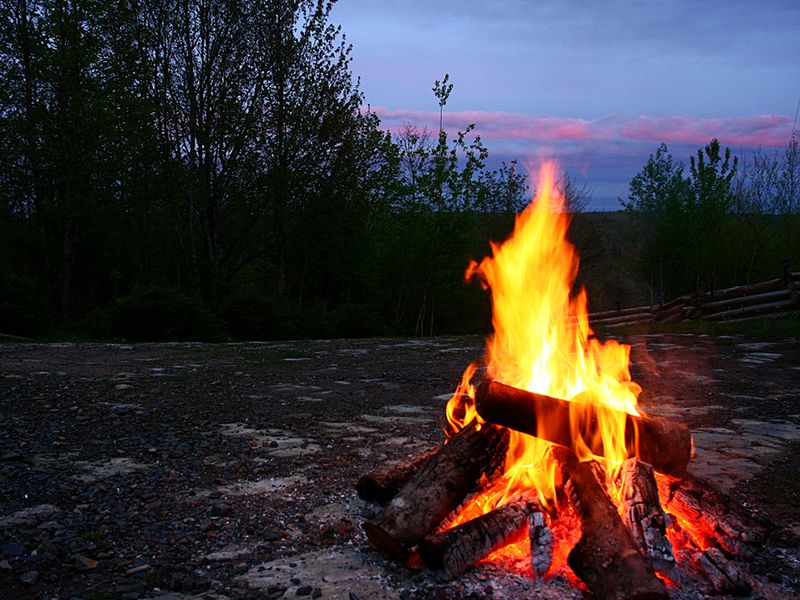
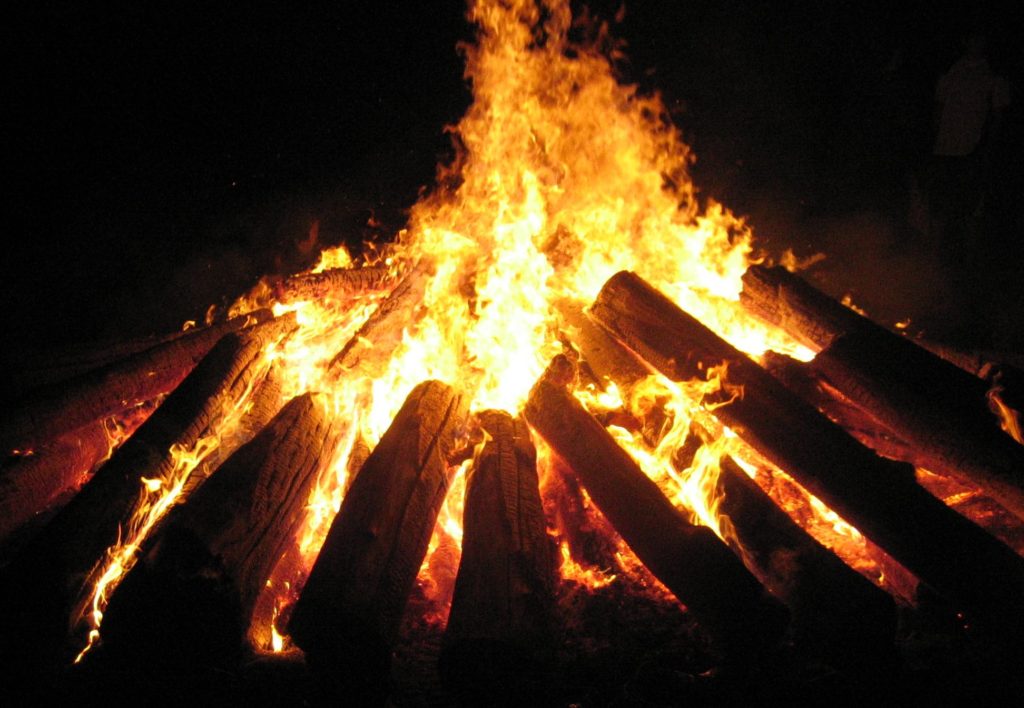

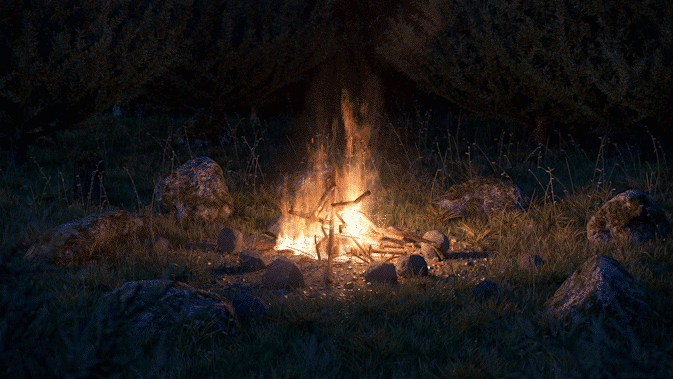
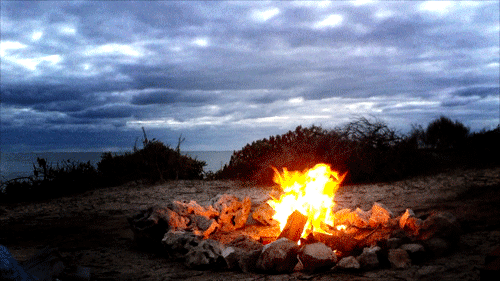
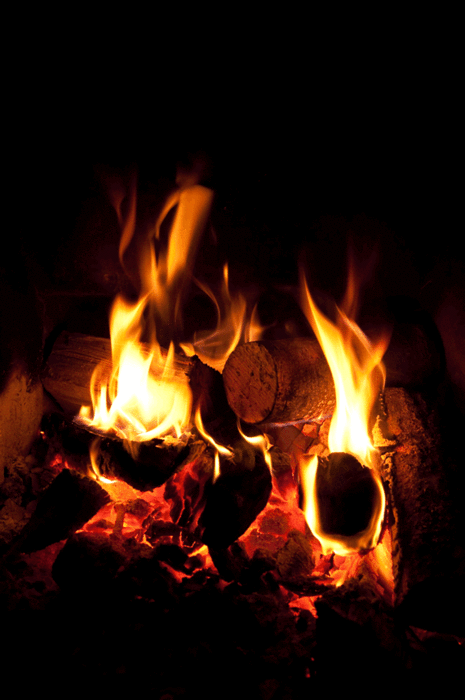
Then, the fire was suddenly extinguished leaving behind total darkness.
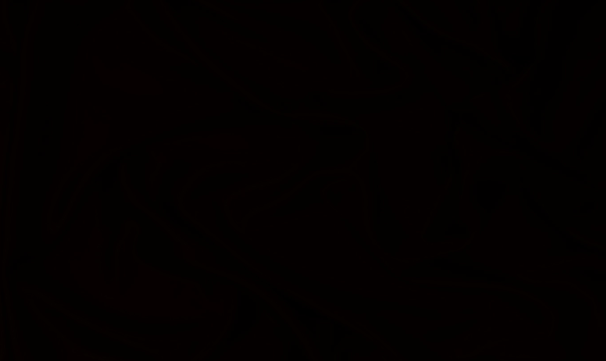
This is what it is like for a total hypocrite – their life is one of total darkness. And this is their own fault because they refused the guidance that Allah offered them, therefore this guidance was taken away from them, leaving them in darkness.
The second parable, which uses water, is about the hesitant hypocrites. These are people who alternate between belief and disbelief.
So, let’s imagine a rainstorm.
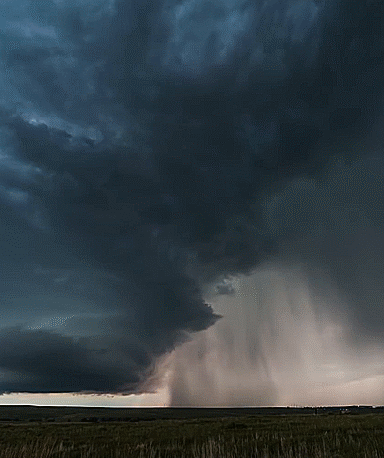
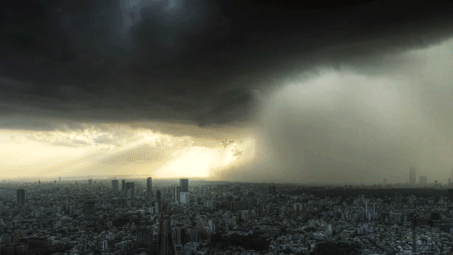
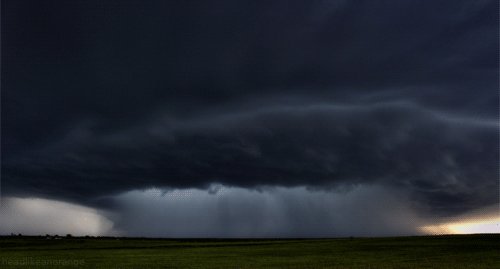
The rainstorm brings darkness.
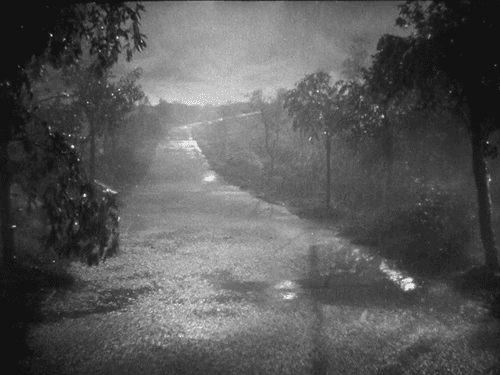
When lightning strikes though, the darkness briefly goes away.
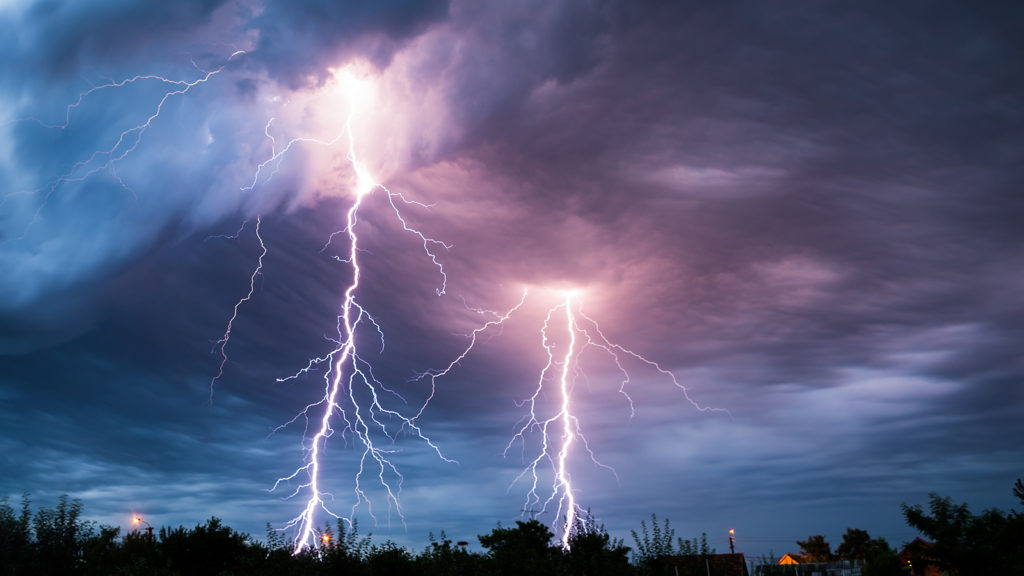
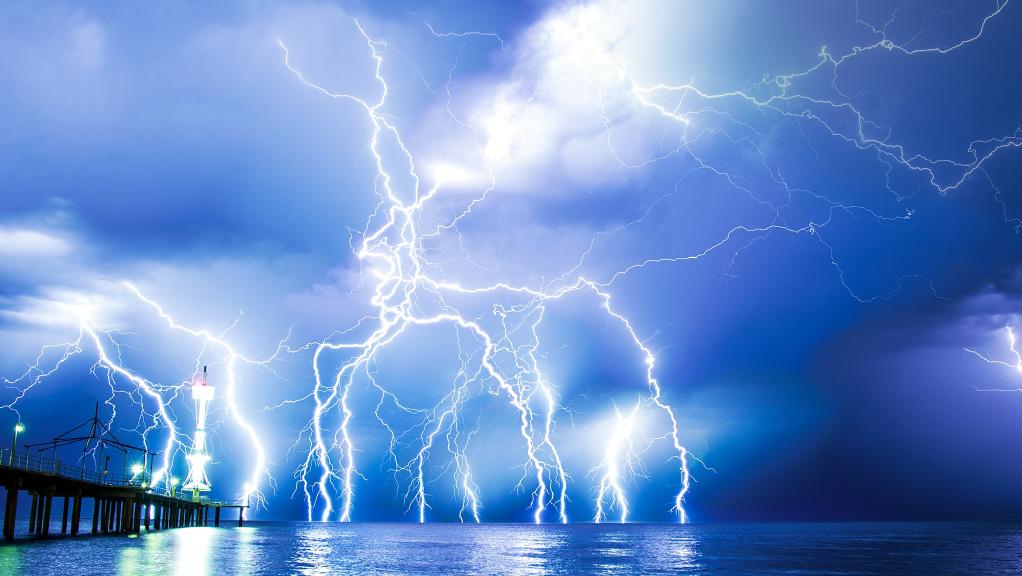
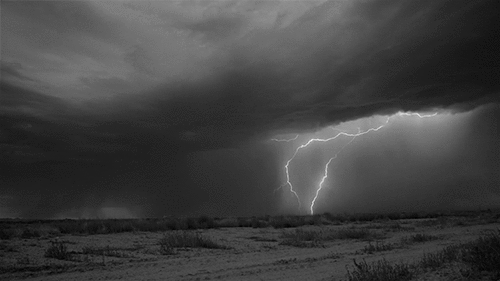
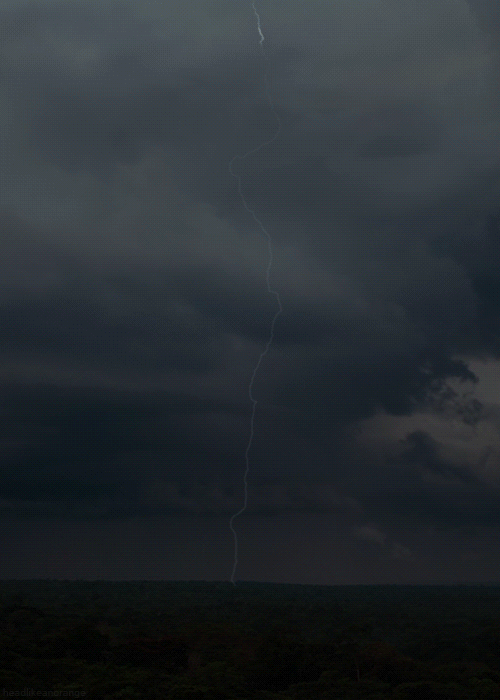
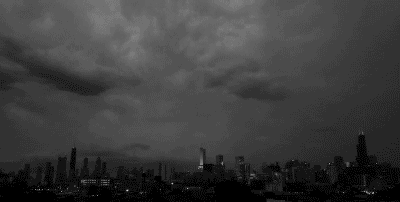
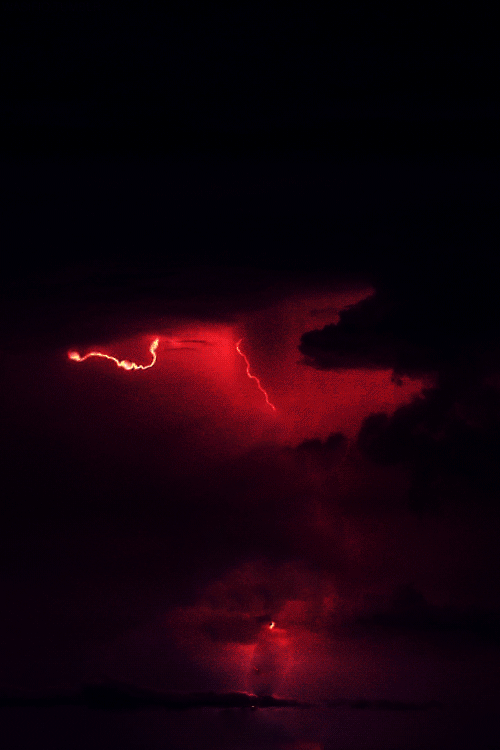
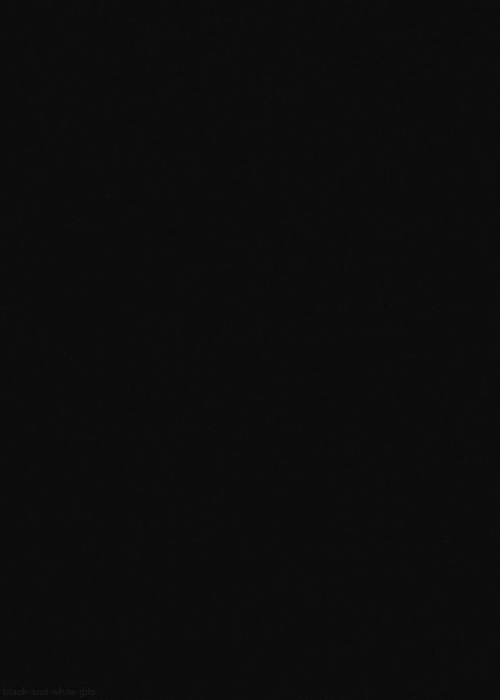
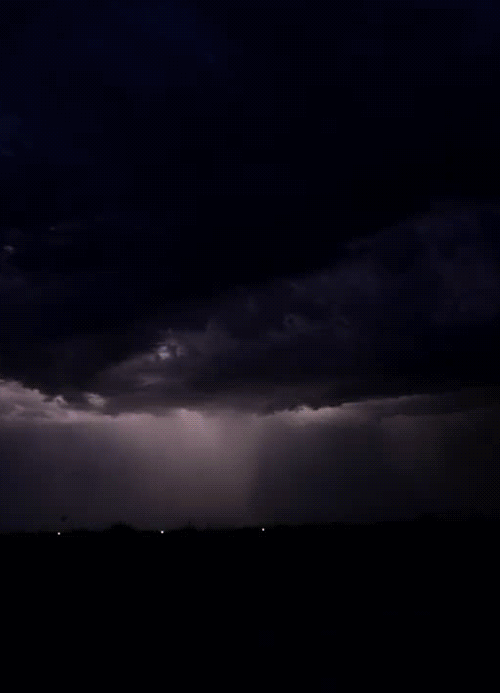
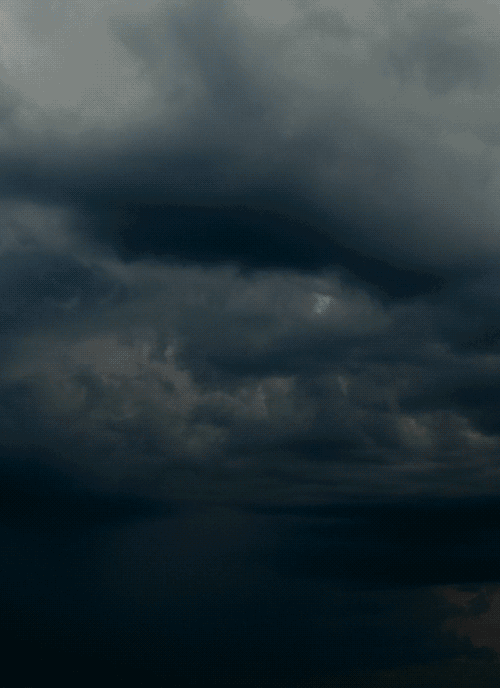
The lightning is basically the light of iman (faith) that is sometimes there in the hesitant hypocrite’s heart.
The next two parables, mentioned by Ibn Kathir in his explanation of Surah Ar-Rad, are in Surah An-Nur and they discuss the disbelievers.
وَالَّذِينَ كَفَرُوا أَعْمَالُهُمْ كَسَرَابٍ بِقِيعَةٍ يَحْسَبُهُ الظَّمْآنُ مَاءً حَتَّىٰ إِذَا جَاءَهُ لَمْ يَجِدْهُ شَيْئًا وَوَجَدَ اللَّـهَ عِندَهُ فَوَفَّاهُ حِسَابَهُ ۗ وَاللَّـهُ سَرِيعُ الْحِسَابِ
أَوْ كَظُلُمَاتٍ فِي بَحْرٍ لُّجِّيٍّ يَغْشَاهُ مَوْجٌ مِّن فَوْقِهِ مَوْجٌ مِّن فَوْقِهِ سَحَابٌ ۚ ظُلُمَاتٌ بَعْضُهَا فَوْقَ بَعْضٍ إِذَا أَخْرَجَ يَدَهُ لَمْ يَكَدْ يَرَاهَا ۗ وَمَن لَّمْ يَجْعَلِ اللَّـهُ لَهُ نُورًا فَمَا لَهُ مِن نُّورٍ
As for those who disbelieve, their deeds are like a mirage in a desert. The thirsty one thinks it to be water, until he comes up to it, he finds it to be nothing, but he finds Allah with him, Who will pay him his due (Hell). And Allah is Swift in taking account.
Or [the state of a disbeliever] is like the darkness in a vast deep sea, overwhelmed with a great wave topped by a great wave, topped by dark clouds, darkness, one above another, if a man stretches out his hand, he can hardly see it! And he for whom Allah has not appointed light, for him there is no light. [Surah An-Nur (24) : 39 – 40]
Ibn Kathir explained some aspects of these verses in his explanation of Surah Al-Baqarah mentioned above. In addition to this, he stated in his explanation of the above verses:
“These are two examples which Allah sets forth of two kinds of disbelievers. Similarly He sets forth two parables of the hypocrites at the beginning of Surat Al-Baqarah: one involving fire and the other involving water. Similarly, in Surat Ar-Rad He gives two parables of the guidance and knowledge that are instilled in the heart, again involving fire and water; we have discussed each of them in the appropriate place and there is no need to repeat it here, praise be to Allah. The first of these two examples is that of the disbelievers who call others to their disbelief, thinking that they have good actions and beliefs, when this is not in fact the case. Their likeness is that of a mirage which is seen in a desert plain, looking from a distance as if it is a deep sea. The word Qiah refers to a vast, flat, level area of land in which the mirage may appear. There are different kinds of mirage, one which appears after midday, and another which appears in the morning and looks like water between heaven and earth. If a person who is in need of water sees the mirage, he thinks that it is water so he heads towards it in order to drink from it, but when he reaches it,
﴿لَمْ يَجِدْهُ شَيْئاً﴾
(he finds it to be nothing.); Similarly the disbeliever thinks that he is doing something good and that he has achieved something, but when Allah judges him on the Day of Resurrection, and brings him to account and examines his deeds, he will find that nothing has been accepted at all, either because of a lack of sincere belief or because he did not follow the proper ways of the Shariah. As Allah says:
﴿وَقَدِمْنَآ إِلَى مَا عَمِلُواْ مِنْ عَمَلٍ فَجَعَلْنَاهُ هَبَآءً مَّنثُوراً ﴾
(And We shall turn to whatever deeds they did, and We shall make such deeds as scattered floating particles of dust.) (25:23). And He says here:
﴿وَوَجَدَ اللَّهَ عِندَهُ فَوَفَّـهُ حِسَابَهُ وَاللَّهُ سَرِيعُ الْحِسَابِ﴾
(but he finds Allah with him, who will pay him his due. And Allah is swift in taking account.) A similar view was also narrated from Ubayy bin Kab, Ibn Abbas, Mujahid, Qatadah and others. In the Two Sahihs, it is reported that on the Day of Resurrection it will be said to the Jews, “What did you used to worship” They will say, “We used to worship Uzayr the son of Allah.” It will be said to them, “You have lied. Allah has not begotten a son. What do you want” They will say, “O Lord, we are thirsty, give us something to drink.” It will be said to them, “Do you not see” Then Hell will be shown to them as if it is a mirage, parts of it consuming other parts, and they will go and fall into it. This is the parable of one whose ignorance is deep and advanced. As for those whose ignorance is simple, those who are uneducated and foolish and blindly follow the leaders of disbelief, knowing and understanding nothing, their parable is as Allah says:
﴿أَوْ كَظُلُمَـتٍ فِى بَحْرٍ لُّجِّىٍّ يَغْشَـهُ مَوْجٌ مِّن فَوْقِهِ مَوْجٌ مِّن فَوْقِهِ سَحَابٌ ظُلُمَـتٌ بَعْضُهَا فَوْقَ بَعْضٍ إِذَآ أَخْرَجَ يَدَهُ لَمْ يَكَدْ يَرَاهَا﴾
(Or like the darkness in a vast deep sea, overwhelmed with waves topped by waves, topped by dark clouds, darkness upon darkness: if a man stretches out his hand, he can hardly see it!) meaning, he can hardly see it because it is so intensely dark. This is the parable of the heart of the disbeliever whose ignorance is simple, who merely follows and does not know the true nature of the one whom he follows or where he is going. He is like the ignorant man in the parable who was asked, “Where are you going” He said, “With them.” He was asked, “Where are they going” He said, “I do not know.”
﴿ظُلُمَـتٌ بَعْضُهَا فَوْقَ بَعْضٍ﴾
(darkness upon darkness) Ubayy bin Kab said: “He is enveloped in five types of darkness: his speech is darkness, his deeds are darkness, his coming in is darkness, his going out is darkness and his destiny on the Day of Resurrection will be darkness in the fire of Hell.” As-Suddi and Ar-Rabi bin Anas also said something similar.
﴿وَمَن لَّمْ يَجْعَلِ اللَّهُ لَهُ نُوراً فَمَا لَهُ مِن نُورٍ﴾
(And he for whom Allah has not appointed light, for him there is no light.) One whom Allah does not guide is ignorant and doomed, an utter loser and disbeliever. This is like the Ayah:
﴿مَن يُضْلِلِ اللَّهُ فَلاَ هَادِيَ لَهُ﴾
(Whomsoever Allah sends astray, none can guide him) ﴿7:186﴾ This is in contrast to what Allah says about the believers:
﴿يَهْدِى اللَّهُ لِنُورِهِ مَن يَشَآءُ﴾
(Allah guides to His Light whom He wills. ) (24:35) We ask Allah the Almighty to put light in our hearts and give us light on our right and on our left, and to increase us in light.”
The first parable mentioned here seems to use water. The group discussed here are the disbelievers who call others to their evil ways. Their ignorance is very deep. They assume their lives were spent doing good when in fact, it was the complete opposite.
So, imagine being stuck in a desert in intense heat.
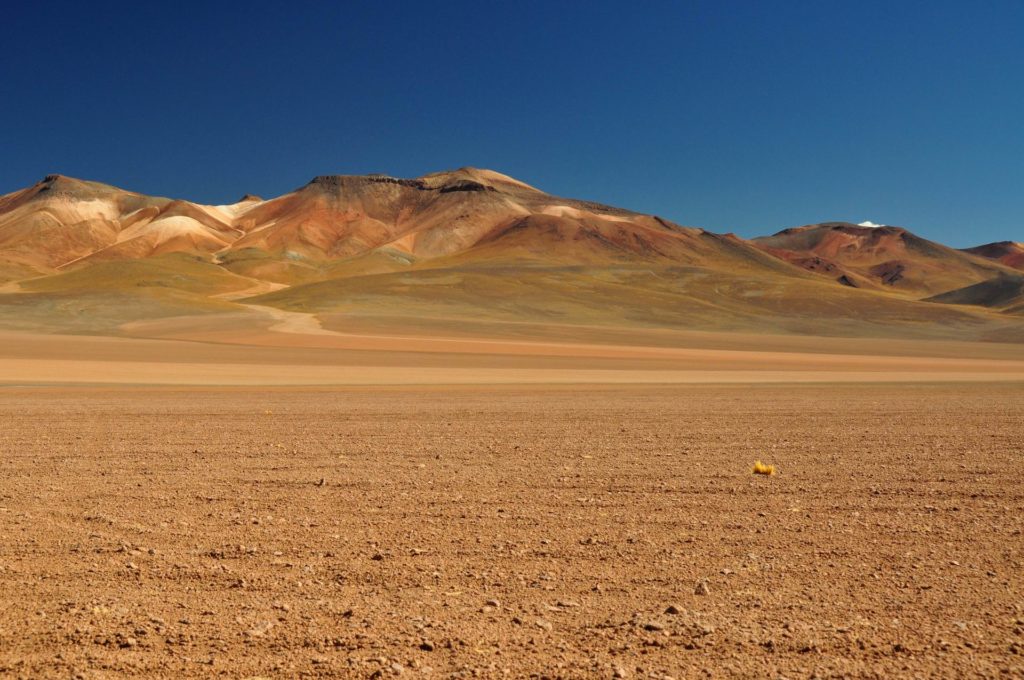
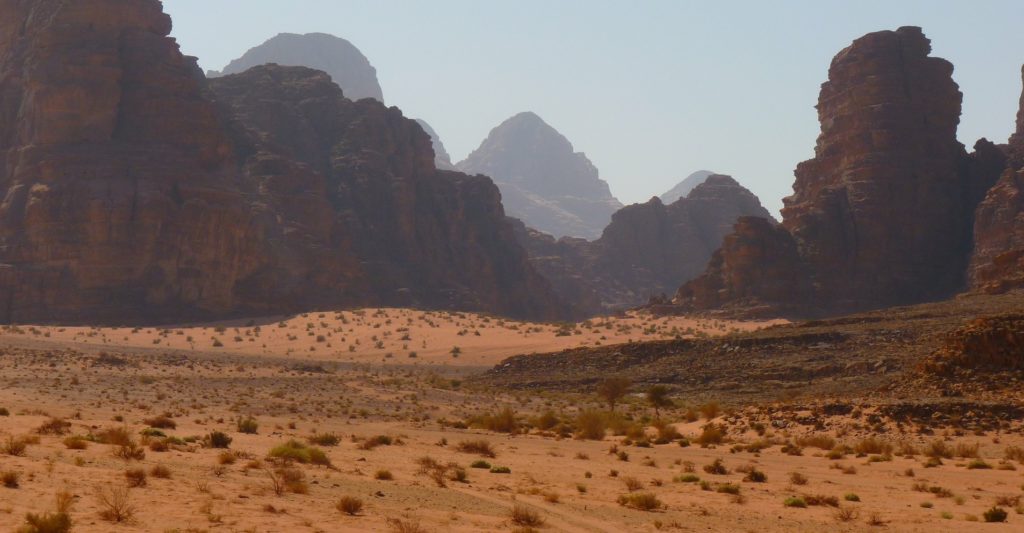
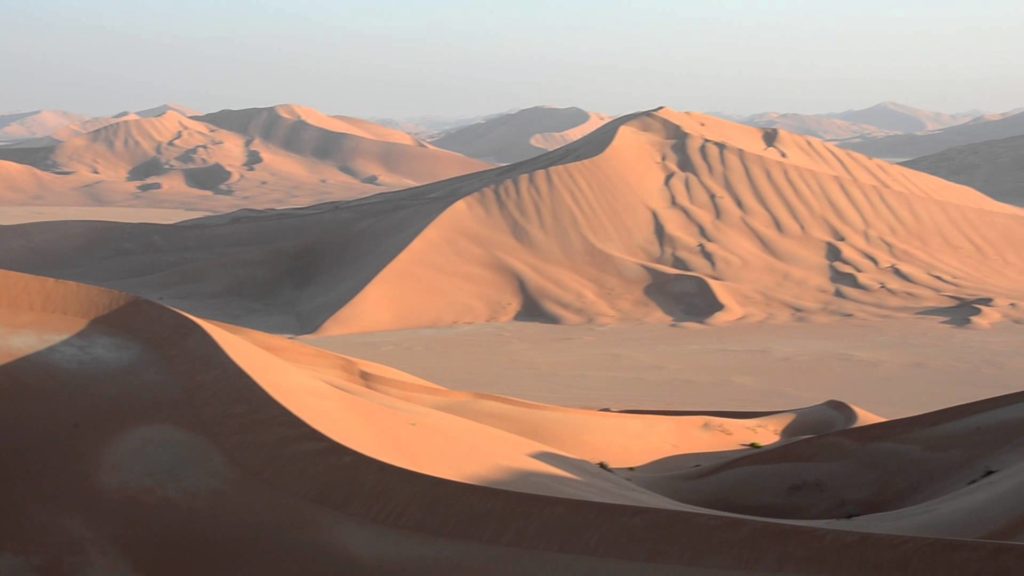
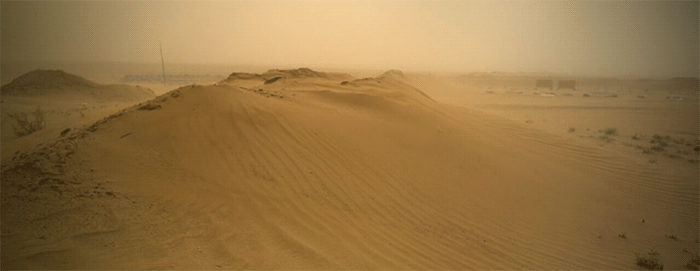
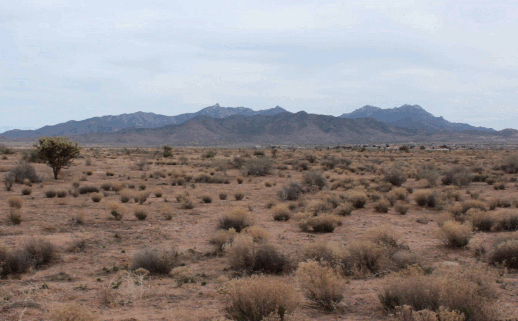
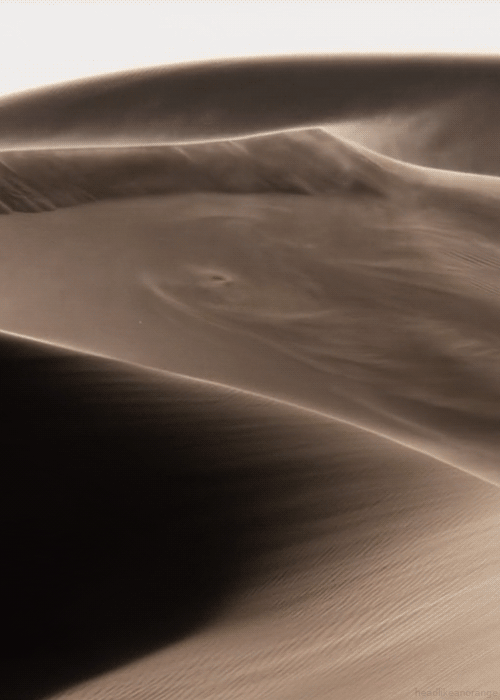
Then, to your delight, you spot some water!
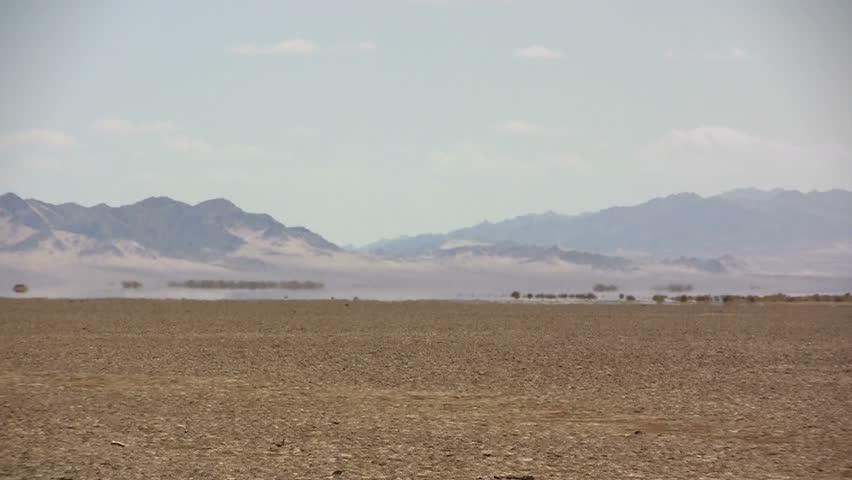
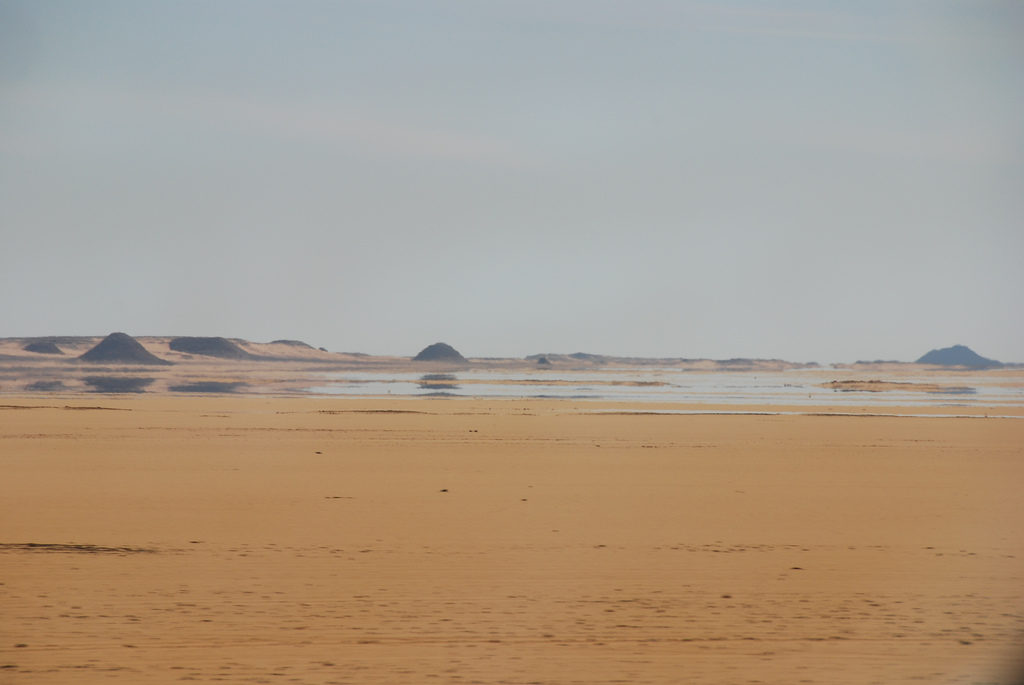
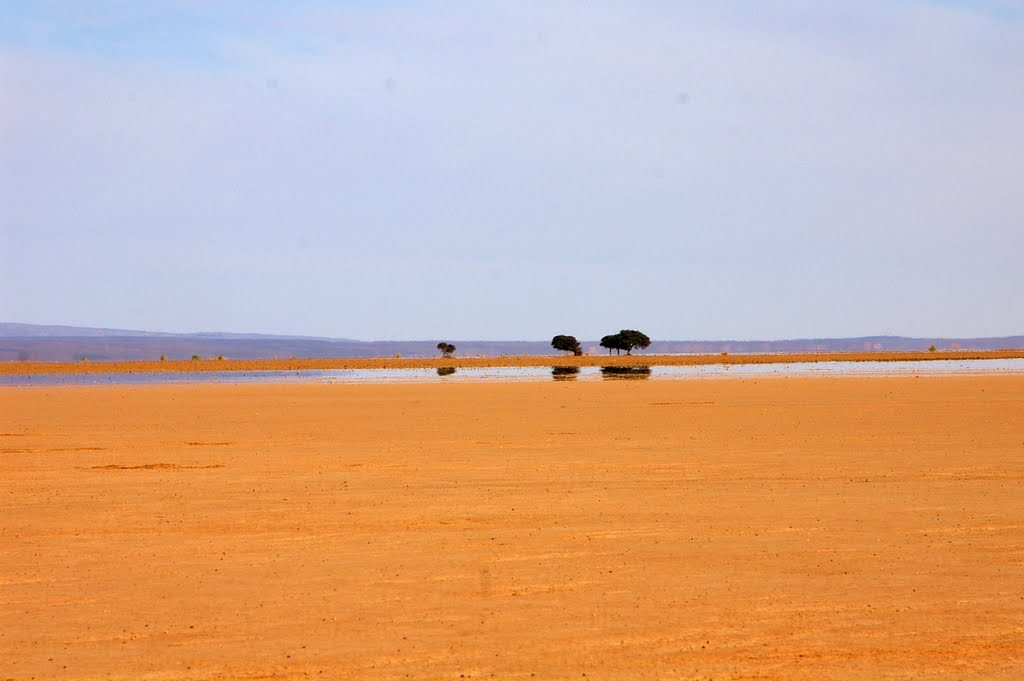
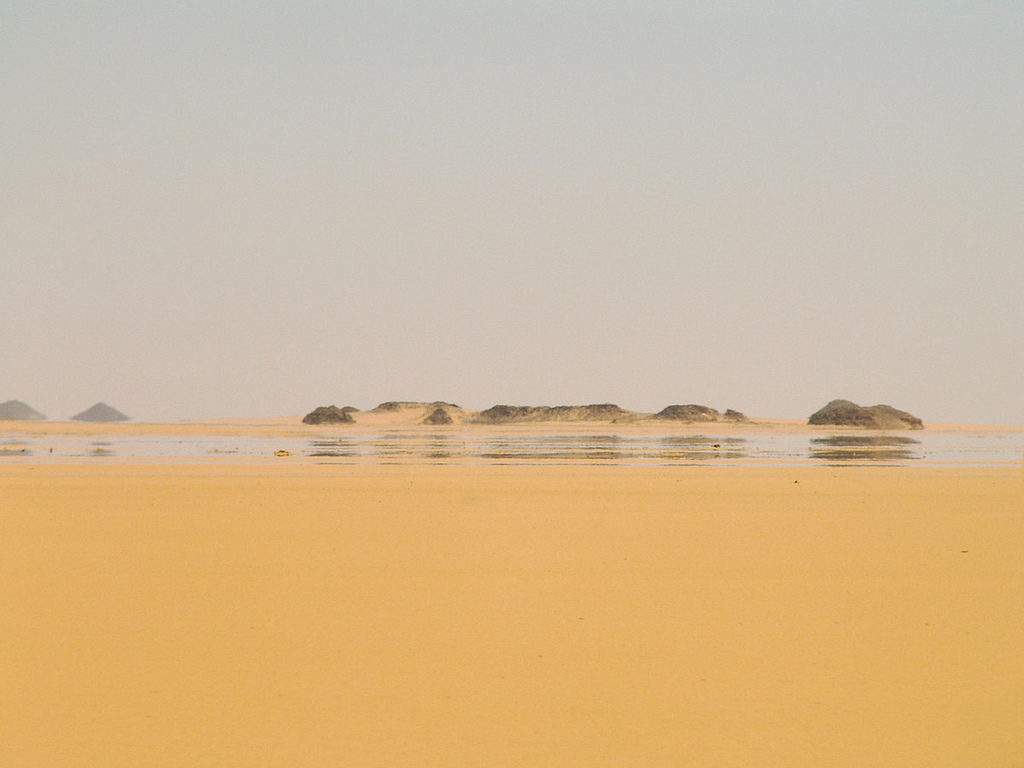
Except that it turns out that it was just a mirage and you’re only left with the desert and its emptiness.
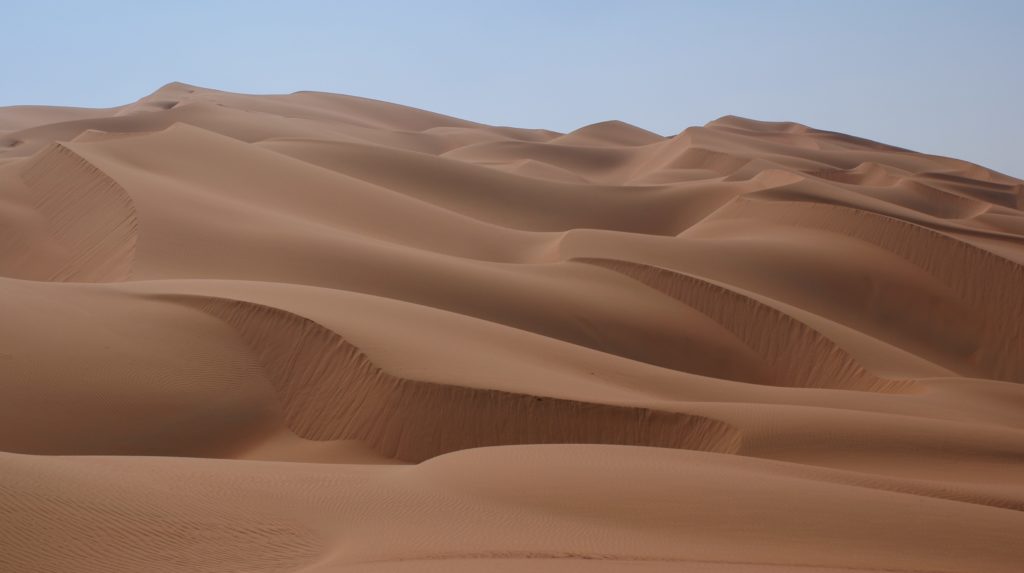
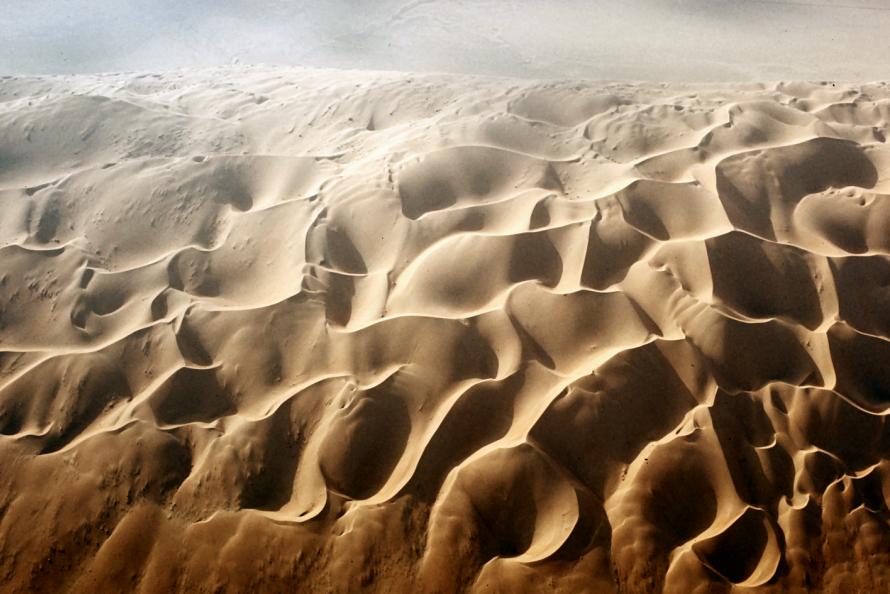
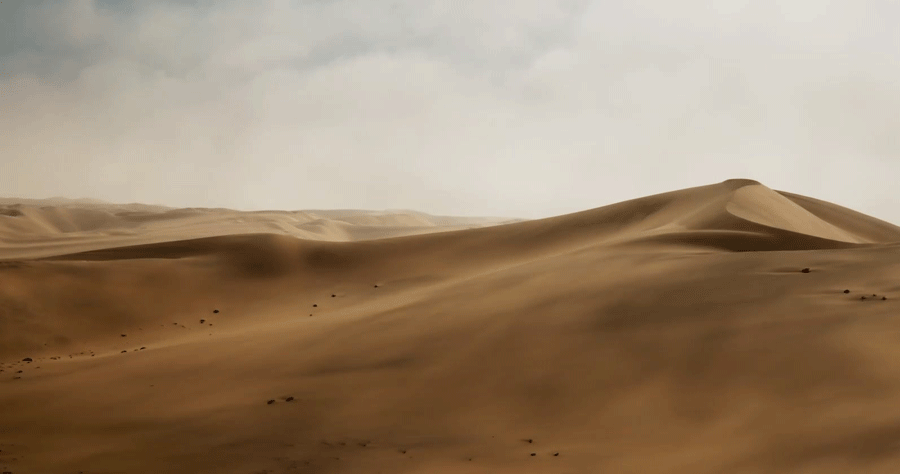
That’s the life of a disbeliever. They think they’ve done lots of good deeds despite never having bothered to worship Allah alone. On the Day of Judgement, they’ll realise the mirage that was their life and enter the Fire. May Allah save us from such an end.
The reason that I said that this parable seems to use water, is because of the mirage. However, Ibn Kathir assumes it uses fire perhaps because that’s the end of the disbelievers (the hadeeth points out that the Fire appears as a mirage to them on the Last Day), and also because the mirage takes place in intense heat.
The second parable mentioned in Surah An-Nur actually does use water. This one discusses the ignorant disbelievers.
So, imagine a vast deep sea at night.
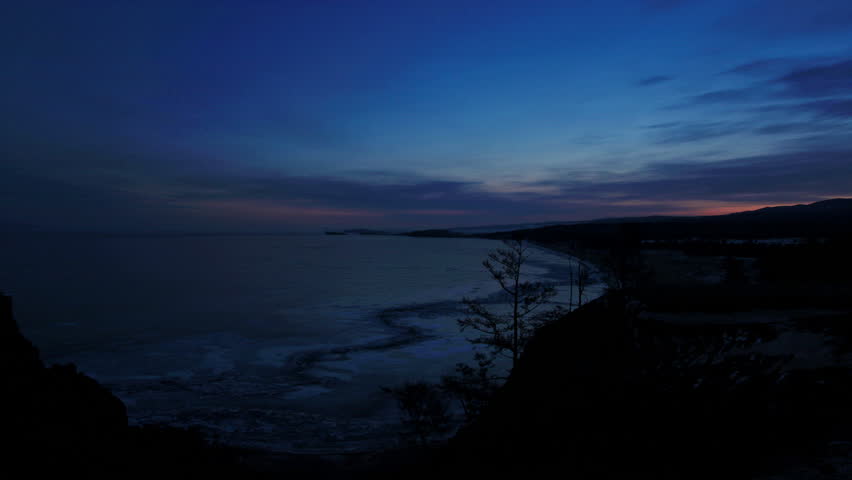
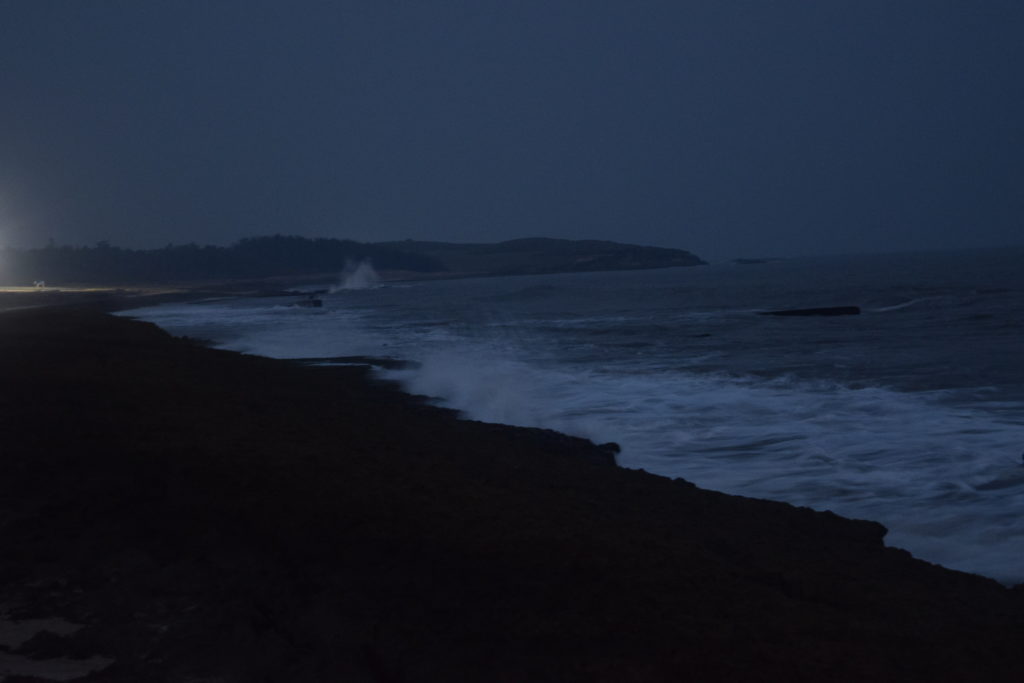
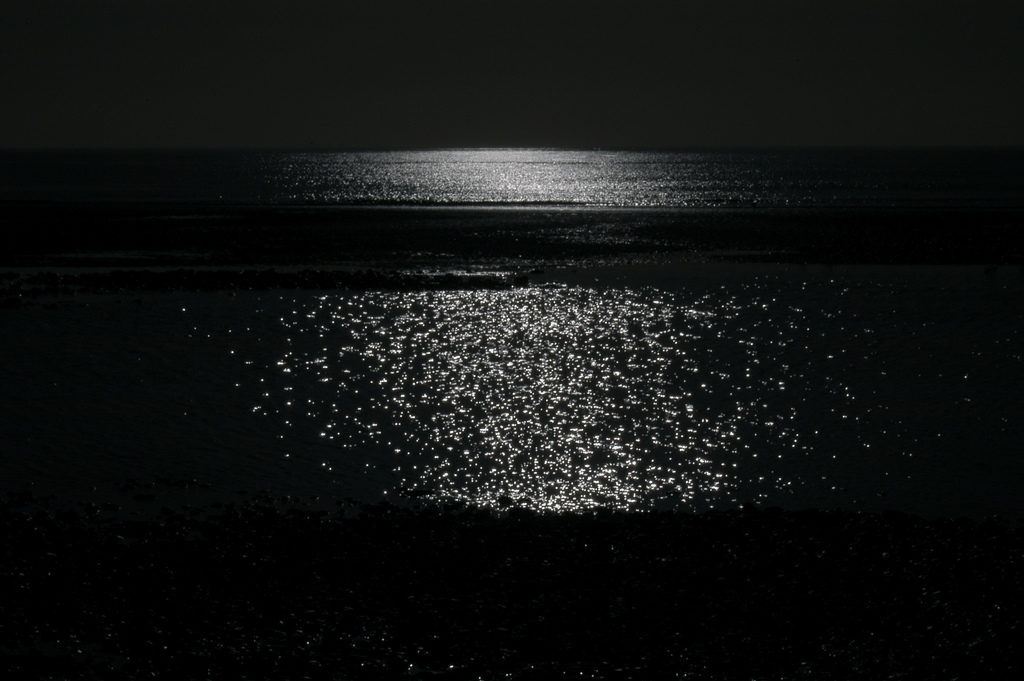
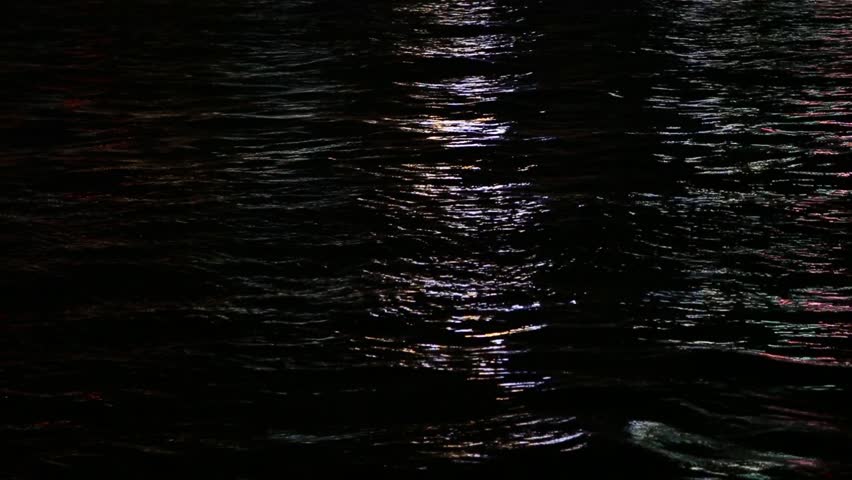
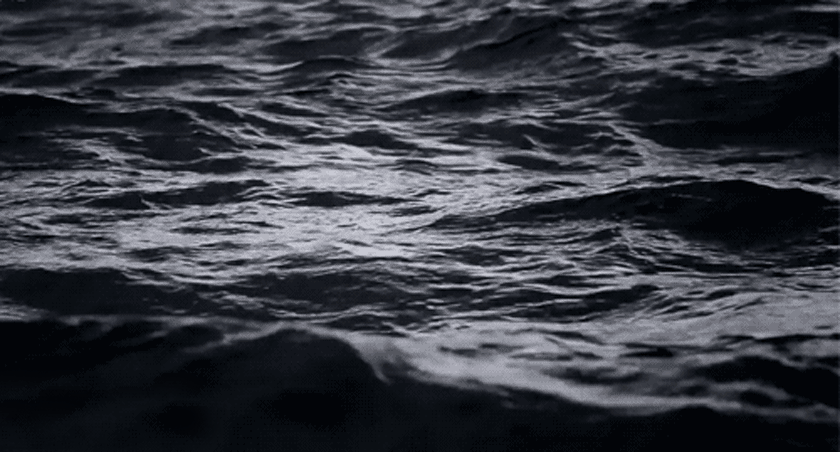
On its own, that’s a whole lot of darkness right there. Now, imagine wave after wave. At night.
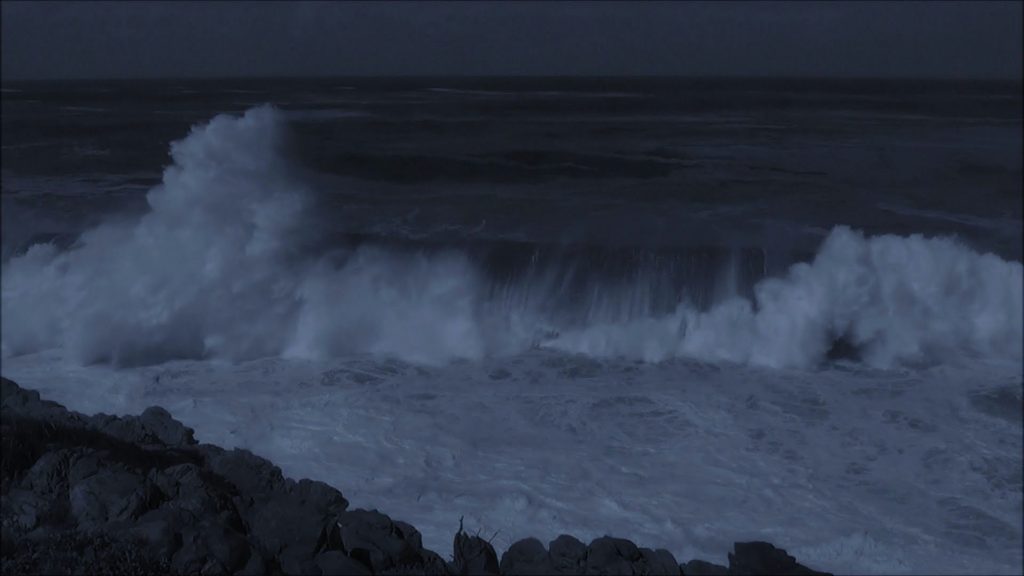
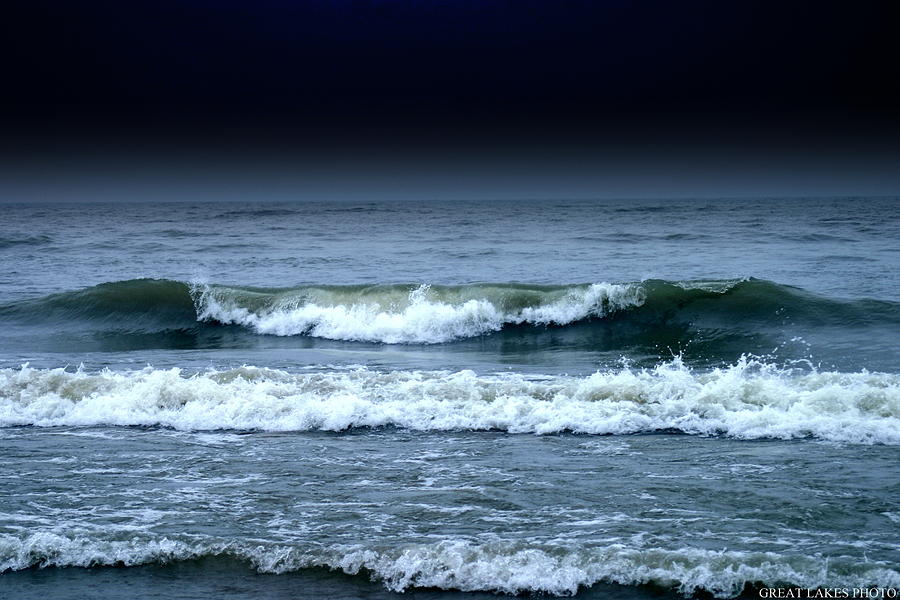

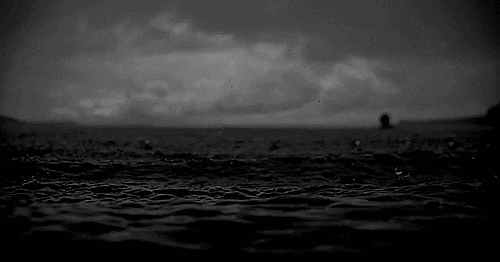

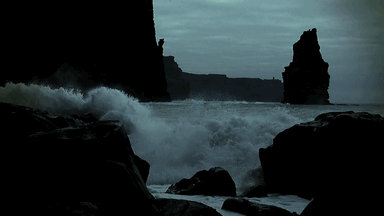
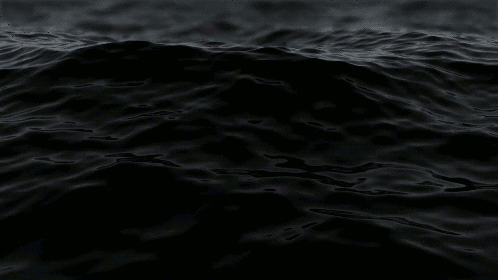
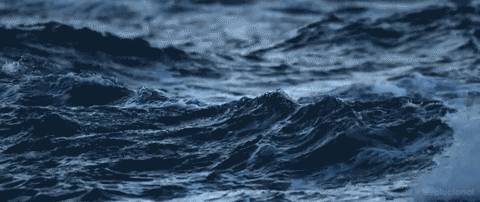
Imagine trying to navigate those waves.
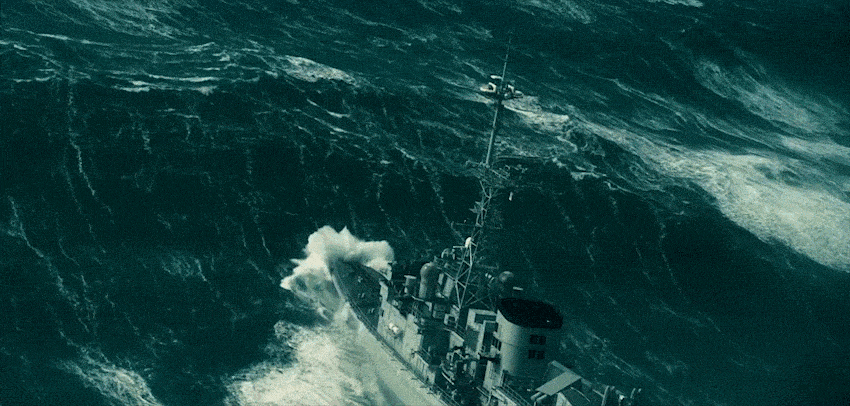
Worse yet, image what it would feel like to be in the water!

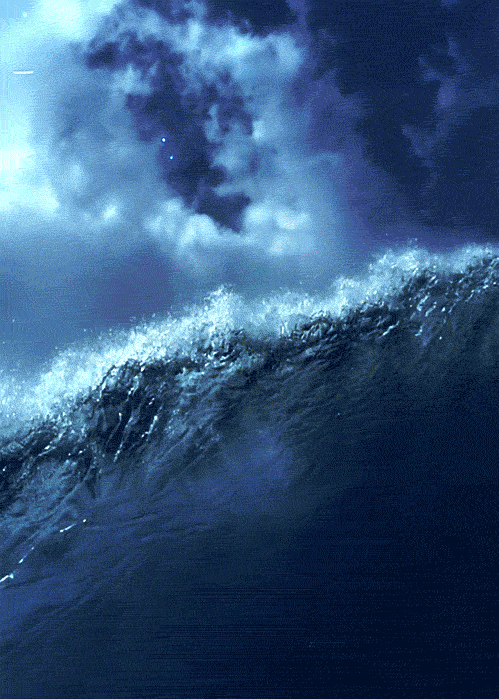
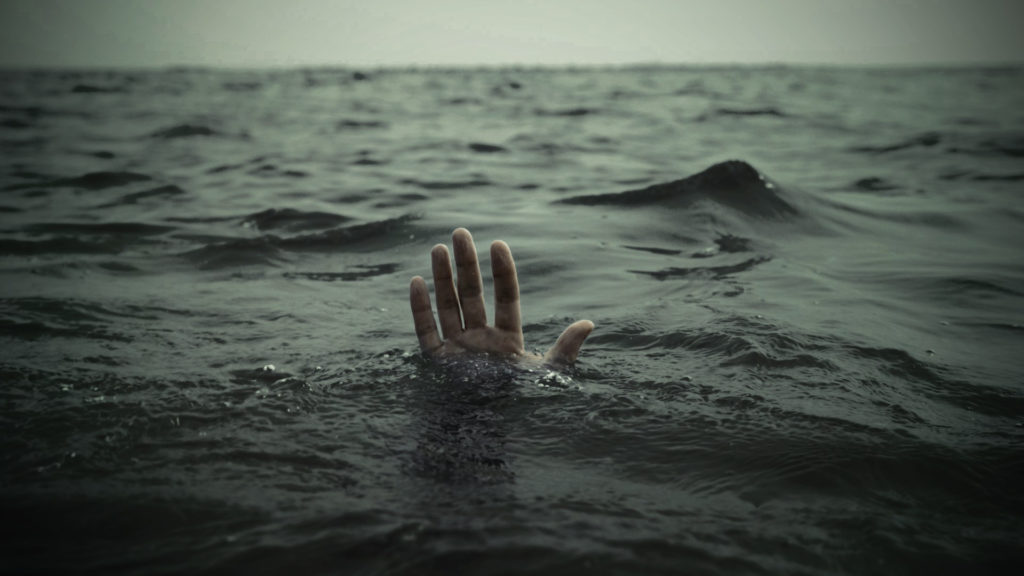
That’s just the shallow part though. Imagine how terrifying it would feel to be deep in the sea.
Oh, that’s not all. Imagine if there were dark clouds hovering over the sea.



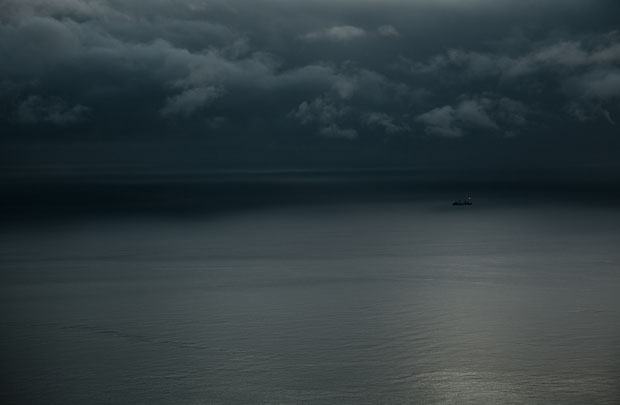
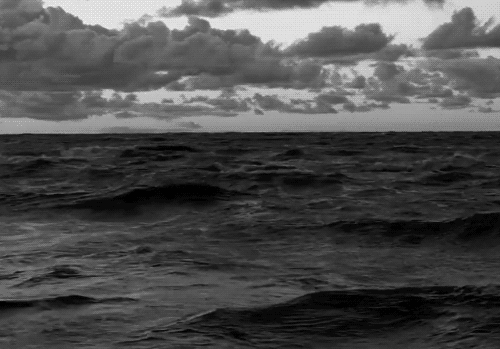
This is what life is like for the ignorant disbeliever. Darkness upon darkness.
And that’s just in THIS world. So what about the Hereafter?? May Allah grant us good, both in this world and the Hereafter.
After the four parables mentioned in the Quran, Imam Ibn Kathir mentions two parables from the Sunnah. He states:
“In the Two Sahihs it is recorded that Abu Musa Al-Ashari said that the Messenger of Allah (sallallahu alaihi wasallam) said,
«إِنَّ مَثَلَ مَا بَعَثَنِي اللهُ بِهِ مِنَ الْهُدَى وَالْعِلْمِ، كَمَثَلِ غَيْثٍ أَصَابَ أَرْضًا، فَكَانَ مِنْهَا طَائِفَةٌ قَبِلَتِ الْمَاءَ فَأَنْبَتَتِ الْكَلَأَ وَالْعُشْبَ الْكَثِيرَ، وَكَانَتْ مِنْهَا أَجَادِبُ أَمْسَكَتِ الْمَاءَ، فَنَفَعَ اللهُ بِهَا النَّاسَ، فَشَرِبُوا، وَرَعَوْا، وَسَقُوا، وَزَرَعُوا، وَأَصَابَتْ طَائِفَةً مِنْهَا أُخْرَى، إِنَّمَااِهيَ قِيعَانٌ لَا تُمْسِكُ مَاءً وَلَا تُنْبِتُ كَلَأً، فَذَلِكَ مَثَلُ مَنْ فَقُهَ فِي دِينِ اللهِ وَنَفَعَهُ اللهُ بِمَا بَعَثَنِي وَنَفَعَ بِهِ، فَعَلِمَ وَعَلَّمَ، وَمَثَلُ مَنْ لَمْ يَرْفَعْ بِذَلِكَ رَأْسًا وَلَمْ يَقْبَلْ هُدَى اللهِ الَّذِي أُرْسِلْتُ بِه»
(The example of guidance and knowledge with which Allah has sent me is like abundant rain falling on the earth, some of which was fertile soil that absorbed the rain water and brought forth vegetation and grass in abundance. And another portion of it was hard, it held the rain water and Allah benefited the people with it and they utilized it for drinking, grazing, making their animals drink from it and for irrigation purposes. And another portion of it fell on barren land, which could neither hold the water nor bring forth vegetation. The first is the example of the person who comprehends Allah’s religion and gets benefit, as well as benefiting others (from the knowledge and guidance) which Allah has revealed through me and learns and then teaches others. The last example is that of a person who does not care for it and does not embrace Allah’s guidance revealed through me.)
This parable uses water in it. In another Hadith that Imam Ahmad collected, Abu Hurayrah narrated that the Messenger of Allah (sallallahu alaihi wasallam) said,
«مَثَلِي وَمَثَلُكُمْ كَمَثَلِ رَجُلٍ اسْتَوْقَدَ نَارًا فَلَمَّا أَضَاءَتْ مَا حَوْلَهُ، جَعَلَ الْفَرَاشُ وَهَذِهِ الدَّوَابُّ الَّتِي يَقَعْنَ فِي النَّارِ يَقَعْنَ فِيهَا، وَجَعَلَ يَحْجُزُهُنَّ وَيغْلِبْنَهُ فَيَقْتَحِمْنَ فِيهَا قَالَ : فَذَلِكُمْ مَثَلِي وَمَثَلُكُمْ، أَنَا آخِذٌ بِحُجَزِكُمْ عَنِ النَّارِ، هَلُمَّ عَنِ النَّارِ، فَتَغْلِبُونِي، فَتَقْتَحِمُونَ فِيهَا»
(My example and the example of you is like that of a person who lit a fire. When the fire illuminated his surroundings, butterflies and insects started falling into it, as they usually do, and he started swatting at them to prevent them from falling; but they overwhelmed him and kept falling into the fire. This is the parable of me and you, I am holding you by the waist trying to save you from the Fire, saying, “Go away from the Fire,” yet you overwhelm me and fall into it.)
The Two Sahihs also collected this Hadith. This is a parable using fire.”
So, the first parable, which is uses water, talks about different types of land. Although three types of land are mentioned, they refer to two types of people, not three.
So, first the rain comes.

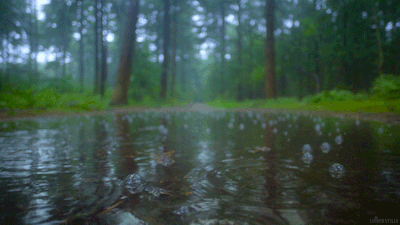
Some of of it falls on fertile land which produces vegetation and grass. Another part of it falls on a hard portion which holds the water.
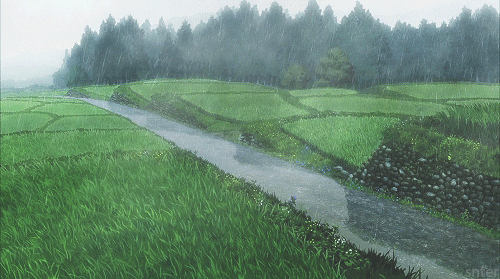
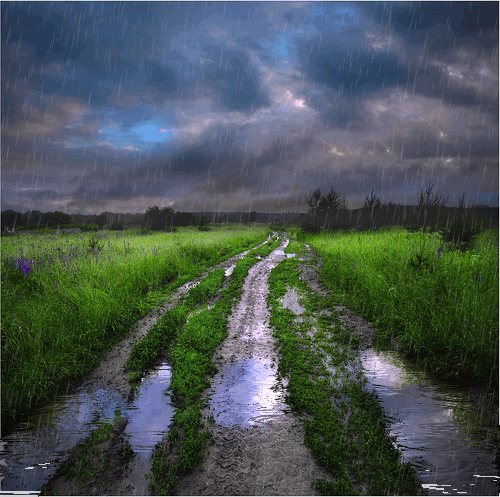
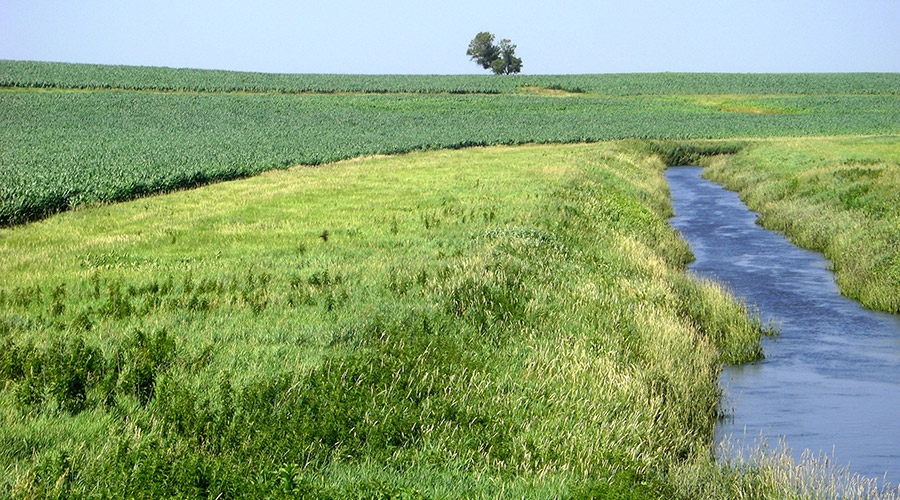




Both these types of land are like the person who benefits from the knowledge (i.e grows vegetation) and helps others (i.e. retains the water so that the animals can drink from it). May Allah make us of these people.
Now, the third type of land is the barren one, which does not hold water nor grow any vegetation, so it’s basically useless.
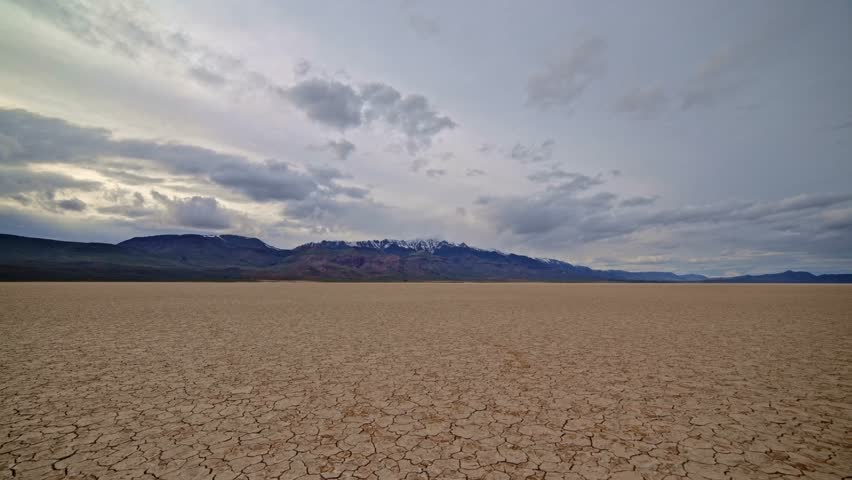
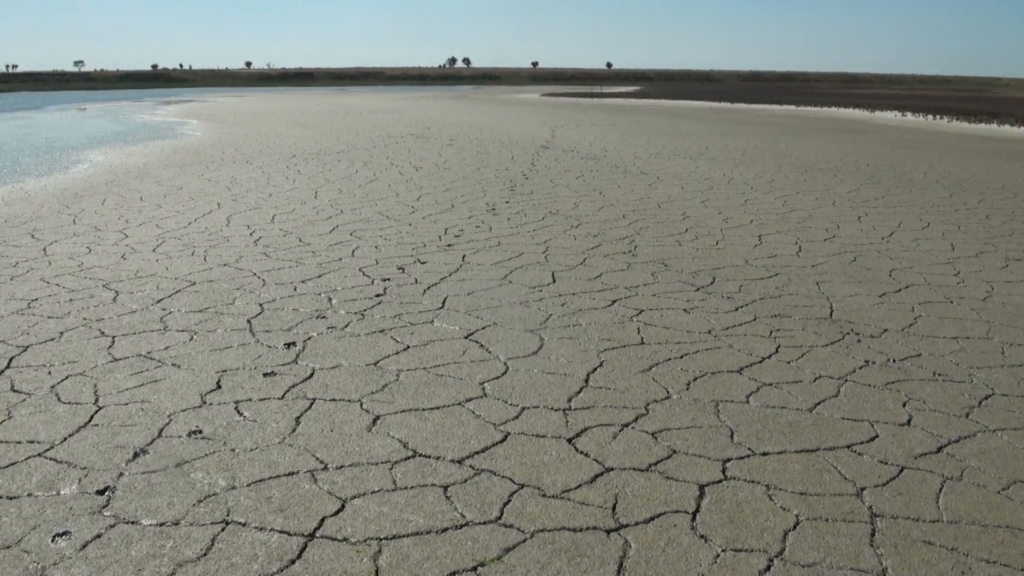
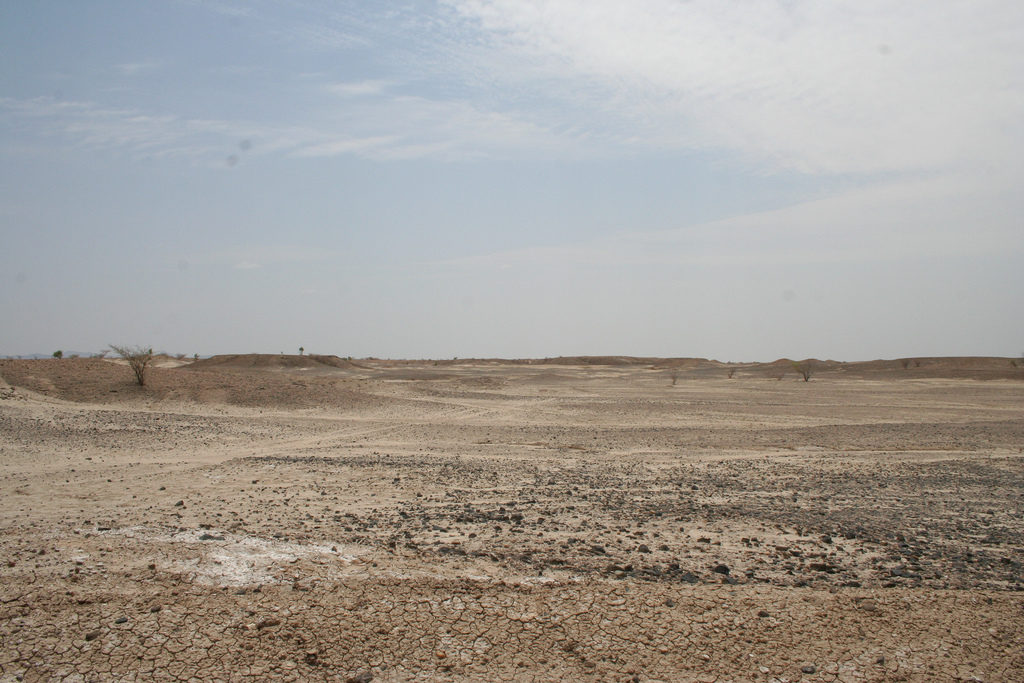
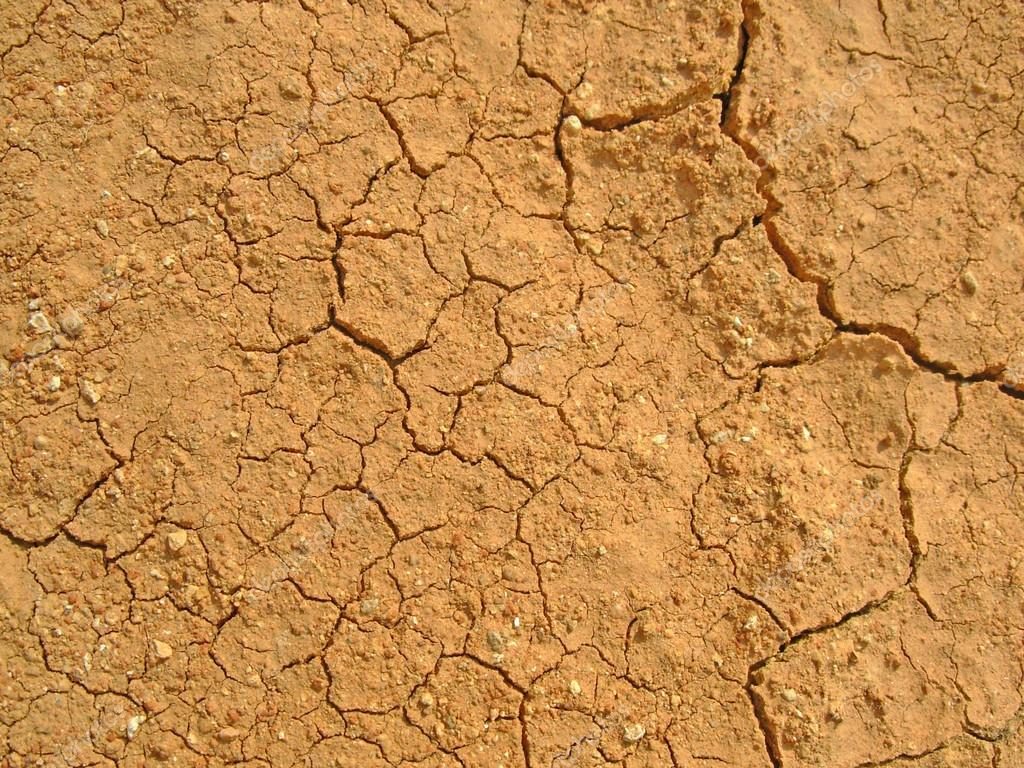
This the example of the person who does not care about Allah’s guidance. This person doesn’t benefit from it nor benefits others with it.
I’m sure that none of us would want to be like this person, or like the disbelievers and hypocrites mentioned earlier, so it’s incumbent upon each of us to keep in touch with the Book of Allah, and the Sunnah of His Messenger (sallallahu alaihi wasallam) on a daily basis and also regularly attend gatherings of knowledge, if possible.
The second parable mentioned from the Sunnah, and the last one in this section of Ibn Kathir’s tafsir, uses fire.
So, first a fire was lit.
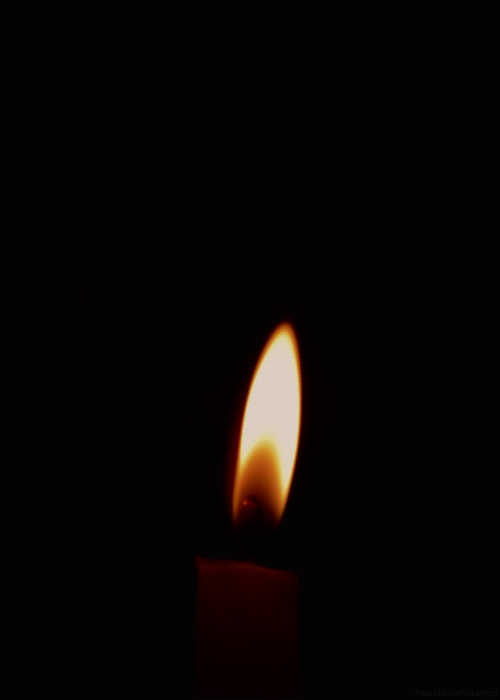
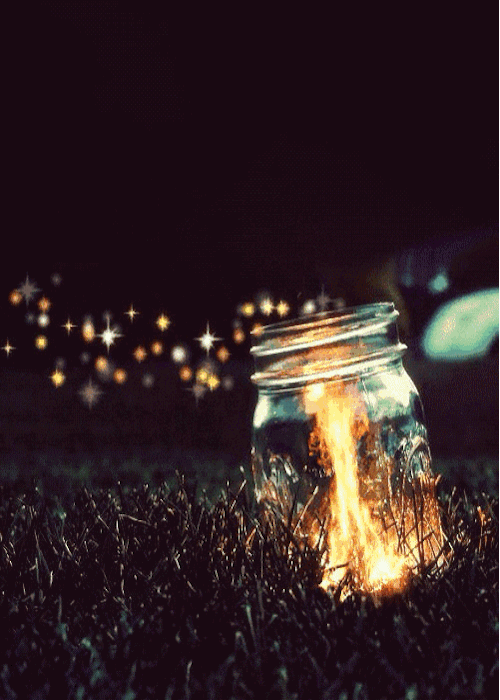
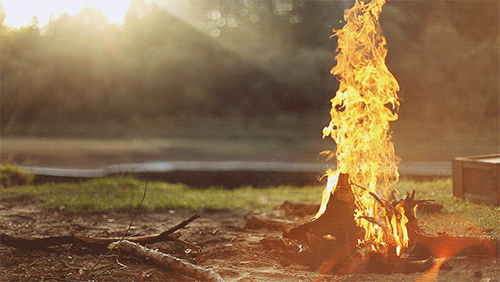
And then insects tried to go inside it.
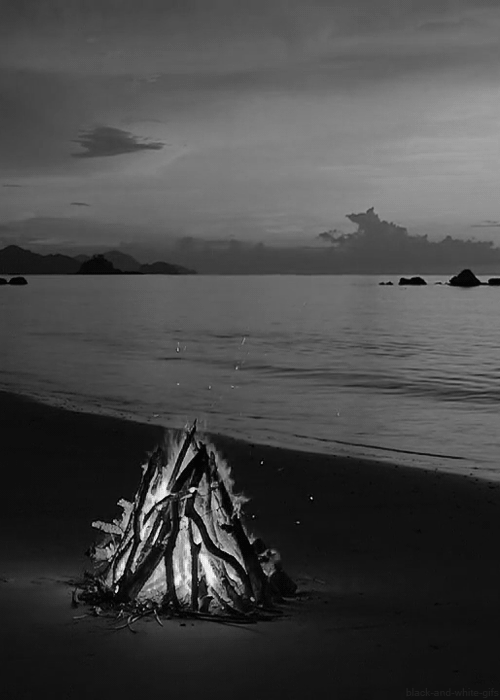

Someone tries to keep the insects from going in but they keep dropping in anyway.
This is the example of all of us! The Prophet (sallallahu alaihi wasallam) left his Sunnah behind for us to follow so that we can avoid the Fire, yet many people are ignorant of this fact and even grumble about Islam being too vast! May Allah enable us to follow the Quran and the Sunnah and save us from the fire.
Those were all the parables mentioned by Ibn Kathir in this section of his tafsir. There are actually more parables in both the Quran and Sunnah that use water or fire, and there are even more parables that use other than that. Imam Ibn Al-Qayyim has a nice book on parables which has been translated it into English. You can download it here.
After mentioning these parables to us in Surah Ar-Rad, Allah says:
لِلَّذِينَ اسْتَجَابُوا لِرَبِّهِمُ الْحُسْنَىٰ ۚ وَالَّذِينَ لَمْ يَسْتَجِيبُوا لَهُ لَوْ أَنَّ لَهُم مَّا فِي الْأَرْضِ جَمِيعًا وَمِثْلَهُ مَعَهُ لَافْتَدَوْا بِهِ ۚ أُولَـٰئِكَ لَهُمْ سُوءُ الْحِسَابِ وَمَأْوَاهُمْ جَهَنَّمُ ۖ وَبِئْسَ الْمِهَادُ
أَفَمَن يَعْلَمُ أَنَّمَا أُنزِلَ إِلَيْكَ مِن رَّبِّكَ الْحَقُّ كَمَنْ هُوَ أَعْمَىٰ ۚ إِنَّمَا يَتَذَكَّرُ أُولُو الْأَلْبَابِ
For those who answered their Lord’s Call [believed in the Oneness of Allah and followed His Messenger Muhammad i.e. Islamic Monotheism] is Al-Husna (i.e. Paradise). But those who answered not His Call (disbelieved in the Oneness of Allah and followed not His Messenger Muhammad), if they had all that is in the earth together with its like, they would offer it in order to save themselves (from the torment, it will be in vain). For them there will be the terrible reckoning. Their dwelling place will be Hell; – and worst indeed is that place for rest.
Shall he then who knows that what has been revealed unto you (O Muhammad) from your Lord is the truth be like him who is blind? But it is only the men of understanding that pay heed. [Surah Ar-Rad (13) : 18-19]
The parables in the Quran and Sunnah are there for a reason but only those who pay heed will understand them.
If we don’t understand these parables, then how will we know whether we resemble the people mentioned? And if we do resemble them, then don’t we have to change our behaviour to something better? Yet, if we don’t ponder to begin with, we won’t ever be able to travel down the road of self-improvement.
Now, ultimately, it is Allah alone who guides a person to understanding and to goodness, so every person should supplicate to Him frequently for this.
Towards the end of this Surah, Allah says:
يَمْحُو اللَّـهُ مَا يَشَاءُ وَيُثْبِتُ ۖ وَعِندَهُ أُمُّ الْكِتَابِ
Allah blots out what He wills and confirms (what He wills). And with Him is the Mother of the Book (Al-Lawh Al-Mahfoodh) [Surah Ar-Rad (13) : 39]
Ibn Kathir states in his explanation of this verse:
“Allah said,
﴿يَمْحُو اللَّهُ مَا يَشَآءُ﴾
(Allah blots out what He wills) of the divinely revealed Books,
وَيُثْبِتُ
(and confirms), until the Quran, revealed from Allah to His Messenger peace be upon him, abrogated them all. Mujahid commented;
﴿يَمْحُو اللَّهُ مَا يَشَآءُ وَيُثْبِتُ﴾
(Allah blots out what He wills and confirms (what He wills).) “Except life and death, misery and happiness (i.e., faith and disbelief), for they do not change.” Mansur said that he asked Mujahid, “Some of us say in their supplication, `O Allah! If my name is with those who are happy (believers), affirm my name among them, and if my name is among the miserable ones (disbelievers), remove it from among them and place it among the happy ones.” Mujahid said. “This supplication is good.” I met him a year or more later and repeated the same question to him and he recited these Ayat,
﴿إِنَّآ أَنزَلْنَـهُ فِى لَيْلَةٍ مُّبَـرَكَةٍ﴾
(We sent it (this Quran) down on a blessed night.) Mujahid commented next, “During Laylatul-Qadr (Night of the Decrees), Allah decides what provisions and disasters will occur in the next year of. He then brings forward or back (or blots out) whatever He wills. As for the Book containing the records of the happy (believers) and the miserable (disbelievers), it does not change.” Al-Amash narrated that Abu Wail, Shaqiq bin Salamah said that he used to recite this supplication often, “O Allah, if You wrote us among the wretched ones, remove this status from us and write us among the blessed ones. If You wrote us among the blessed ones, please let us stay that way, for surely, You blot out and confirm what You will, and with You is the Mother of the Book.” Ibn Jarir At-Tabari collected this. Similar statements were collected from Umar bin Al-Khattab and Abdullah bin Masud, indicating that Allah blots out (or abrogates) and affirms what He wills in the Book of Records. What further supports this meaning is that Imam Ahmad recorded that Thawban said that the Messenger of Allah (sallallahu alaihi wasallam) said,
«إِنَّ الرَّجُلَ لَيُحْرَمُ الرِّزْقَ بِالذَّنْبِ يُصِيبُهُ، وَلَا يَرُدُّ الْقَدَرَ إِلَّا الدُّعَاءُ، وَلَا يَزِيدُ فِي الْعُمْرِ إِلَّا الْبِر»
(A man might be deprived of a provision (that was written for him) because of a sin that he commits; only supplication changes Al-Qadar (Predestination); and only Birr (righteousness) can increase the life span.”) An-Nasai and Ibn Majah collected this Hadith. There is also a Hadith recorded in the Sahih that affirms that maintaining the ties of the womb increases the life span. Al-Awfi reported that Ibn Abbas said about Allah’s statement,
﴿يَمْحُو اللَّهُ مَا يَشَآءُ وَيُثْبِتُ وَعِندَهُ أُمُّ الْكِتَـبِ ﴾
(Allah blots out what He wills and confirms (what He wills). And with Him is the Mother of the Book.) “A man might work in Allah’s obedience for a while but he reverts to the disobedience of Him and then dies while misguided. This is what Allah blots out, while what He confirms is a man who works in His disobedience, but since goodness was destined for him, he dies after reverting to the obedience of Allah. This is what Allah confirms.” It was also reported that Said bin Jubayr said that this Ayah is in the meaning of another Ayah,
﴿فَيَغْفِرُ لِمَن يَشَآءُ وَيُعَذِّبُ مَن يَشَآءُ وَاللَّهُ عَلَى كُلِّ شَيْءٍ قَدِيرٌ﴾
(Then He forgives whom He wills and punishes whom He wills. And Allah is able to do all things.) (2:284)”
So, dua (supplication) for guidance is a must. Unfortunately, most of mankind refuses guidance.
وَلَقَدْ صَرَّفْنَا لِلنَّاسِ فِي هَـٰذَا الْقُرْآنِ مِن كُلِّ مَثَلٍ فَأَبَىٰ أَكْثَرُ النَّاسِ إِلَّا كُفُورًا
And indeed We have fully explained to mankind, in this Quran, every kind of similitude, but most mankind refuse (the truth and accept nothing) but disbelief. [Surah Al-Israa (17) : 89]
So, whenever we recite or memorise the Quran, let us all try to ponder over the words of Allah and see how the parables and stories mentioned relate to us.
May Allah make us of those who ponder His Book and accept guidance.
